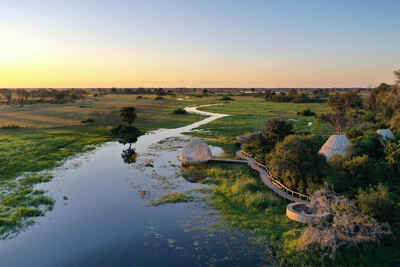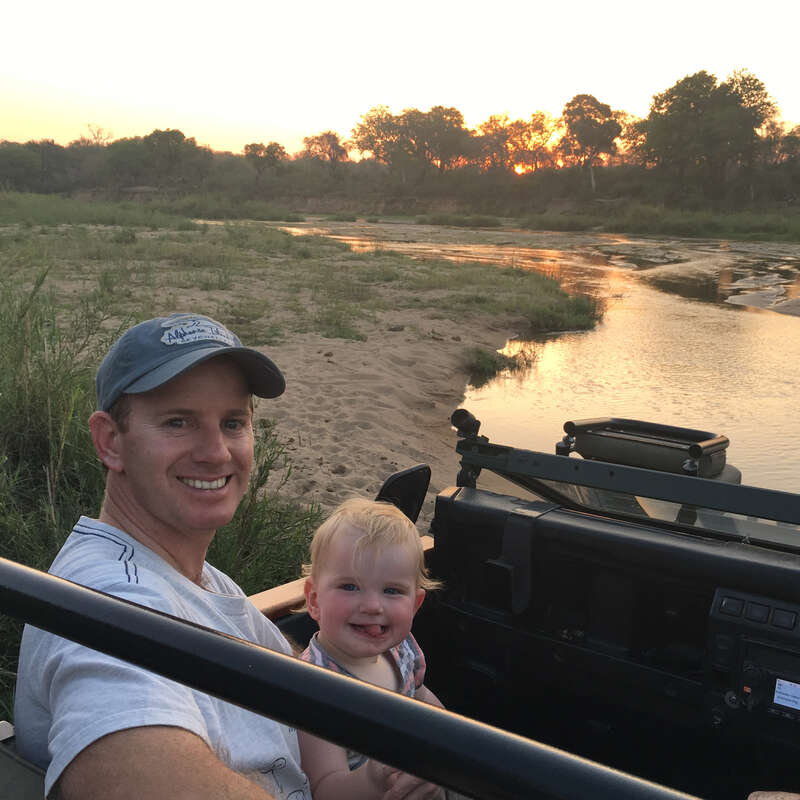About Jao Camp
Situated on a remote island in the middle of the large private Jao Reserve in Botswana’s Okavango Delta, ...
... Jao Camp is surrounded by open seasonal floodplains dotted with small islands. With a fusion style of Balinese and African décor, Jao is an imposing and luxurious camp which sprawls over roughly a kilometre among tall shady leadwood, African mangosteen and ebony trees.
Jao is a well-established and very luxurious camp – even by Botswana's high standards – and has a price tag to match. It's a camp that can be enjoyed and experienced for itself, as much as for its beautiful surroundings. The food and spa are very good, the levels of service are high, and they seem to succeed in providing a more individual and adaptable experience than many other Okavango camps. Jao is unlikely to appeal to the safari 'purist', unless they're keen birders, but for a couple of nights at the start or end of a trip, to relax and enjoy the best of the Okavango Delta's water-based activities, it's a great choice.
Our view
Jao is a well-established and very luxurious camp – even by Botswana's high standards – and has a price tag to match. It's a camp that can be enjoyed and experienced for itself, as much as for its beautiful surroundings. The food and spa are very good, the levels of service are high, and they seem to succeed in providing a more individual and adaptable experience than many other Okavango camps. Jao is unlikely to appeal to the safari 'purist', unless they're keen birders, but for a couple of nights at the start or end of a trip, to relax and enjoy the best of the Okavango Delta's water-based activities, it's a great choice.
Accommodation
9 suites
Children
Best for aged 6+
Open
All year
Activities

4WD Safari

Birdwatching

Boat trip

Fishing

Guided walking safari

Helicopter

Mokoro

Night drive

Private activities
Traveller reviews of Jao Camp
6 real, un-edited reviews from Expert Africa's travellers.
Arrived 21 May 2023, 3 nights
"Jao Camp review"
Overall rating: Excellent
Arrived 16 May 2022, 4 nights
"Jao Camp review"
Overall rating: Excellent
Arrived 17 Oct 2013, 2 nights
"Jao Camp review"
Overall rating: Good
Arrived 26 May 2008, 3 nights
"Jao Camp review"
Overall rating: Excellent
Arrived 21 Oct 2007, 3 nights
"Best tree house ever"
Overall rating: Excellent
Arrived 27 Sep 2007, 3 nights
"Jao Camp"
Overall rating: Poor
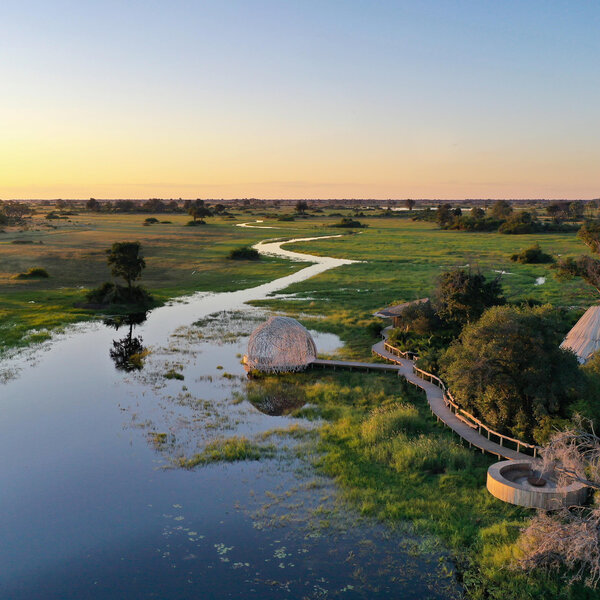
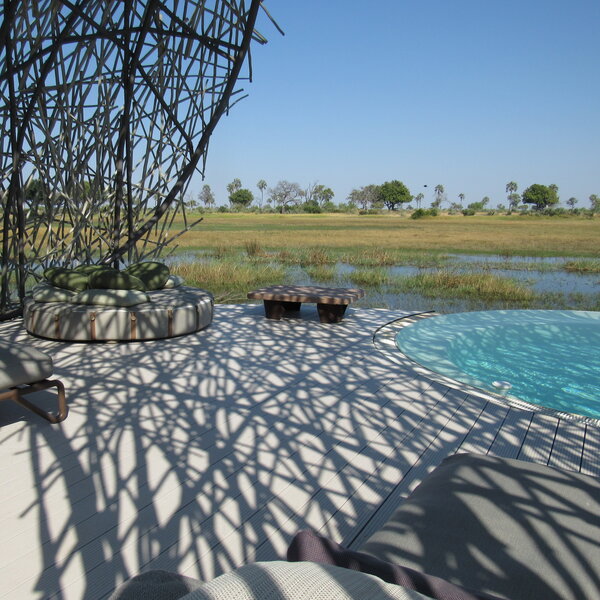
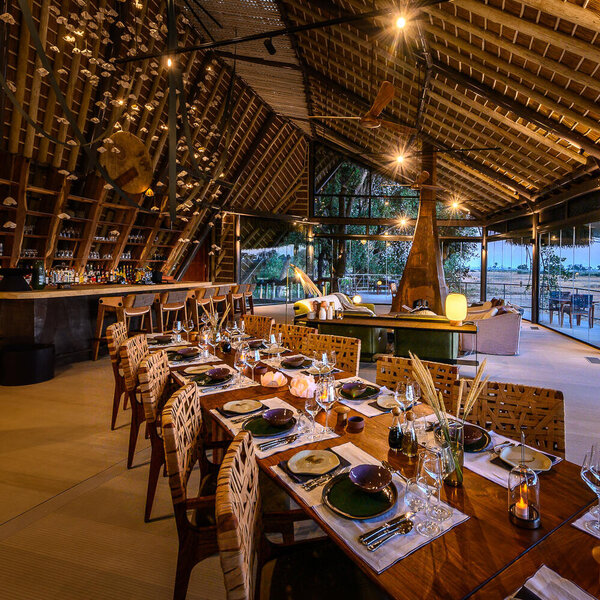
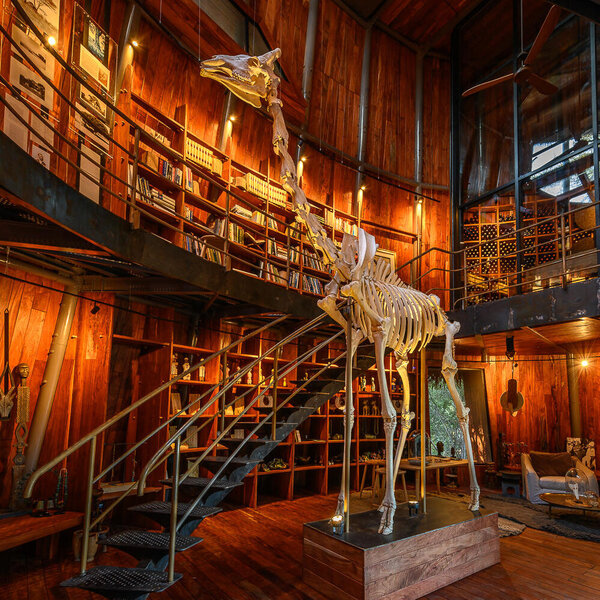
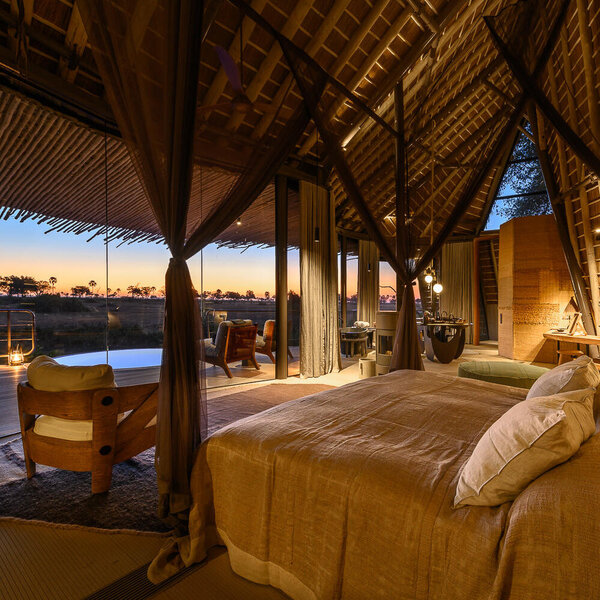
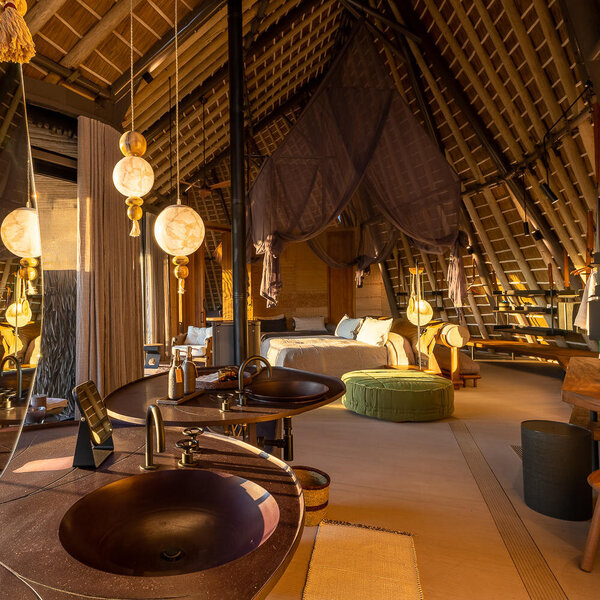
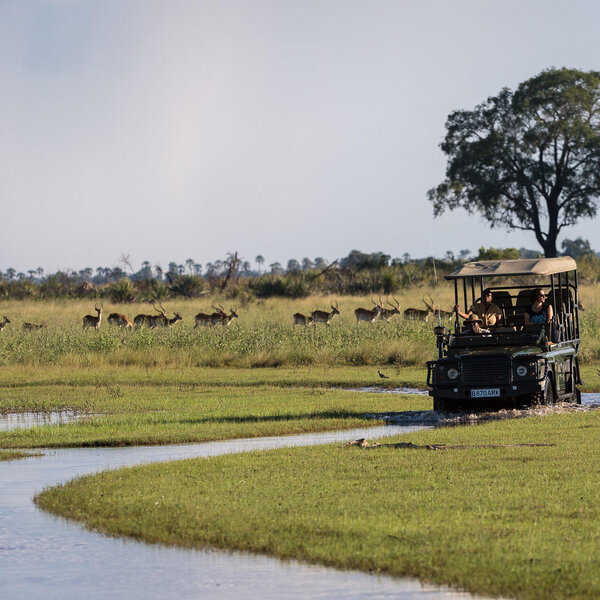
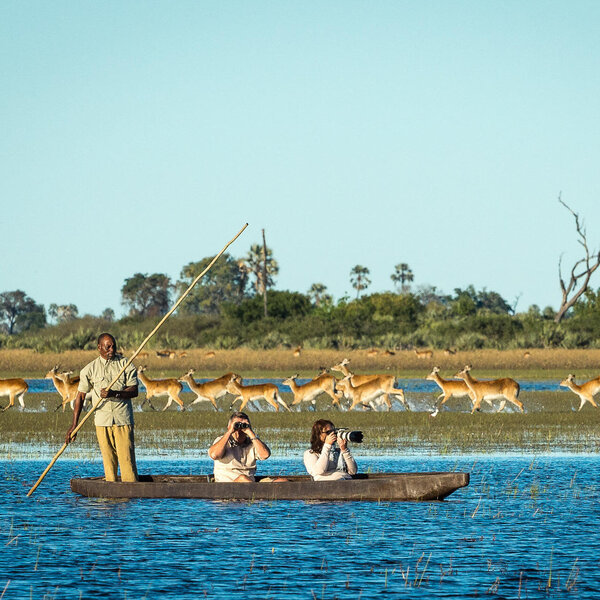
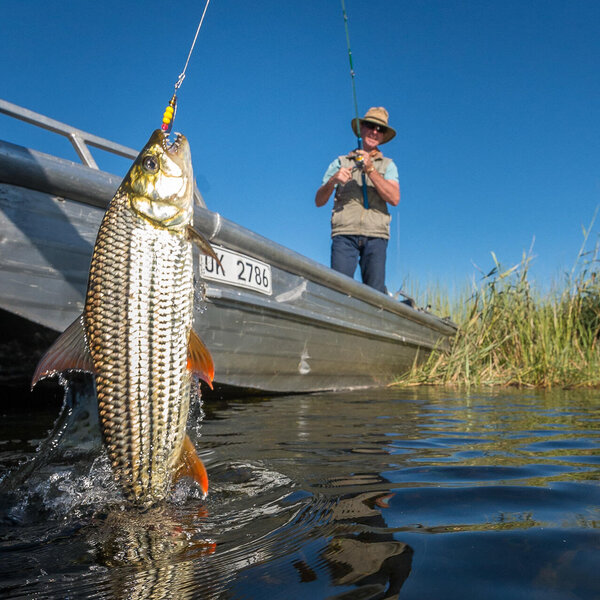
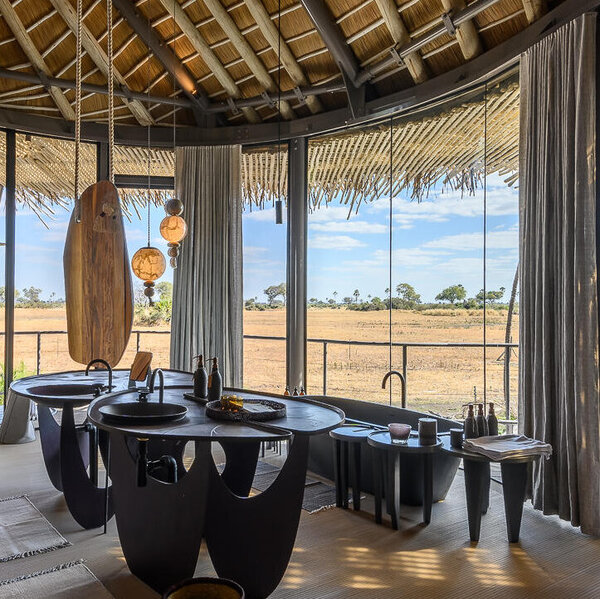
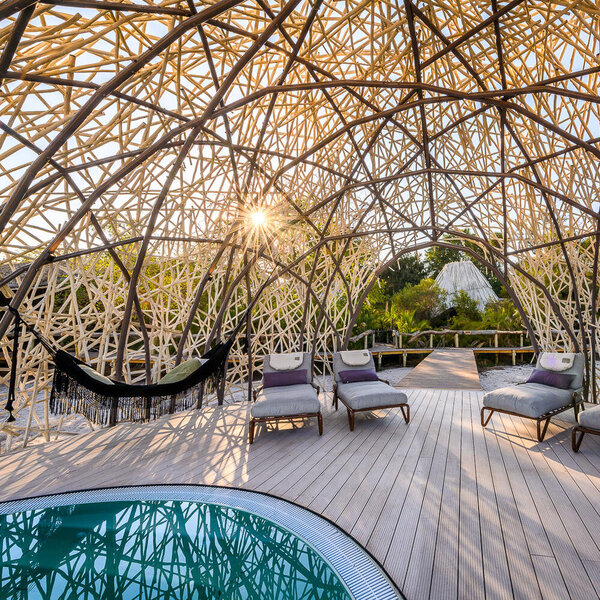
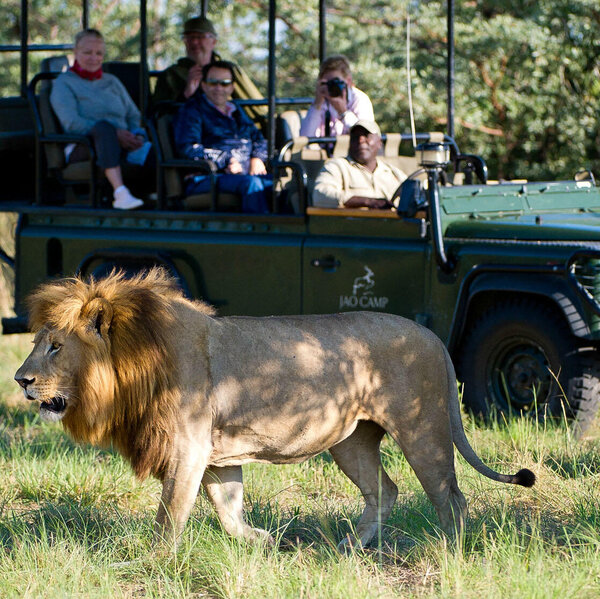
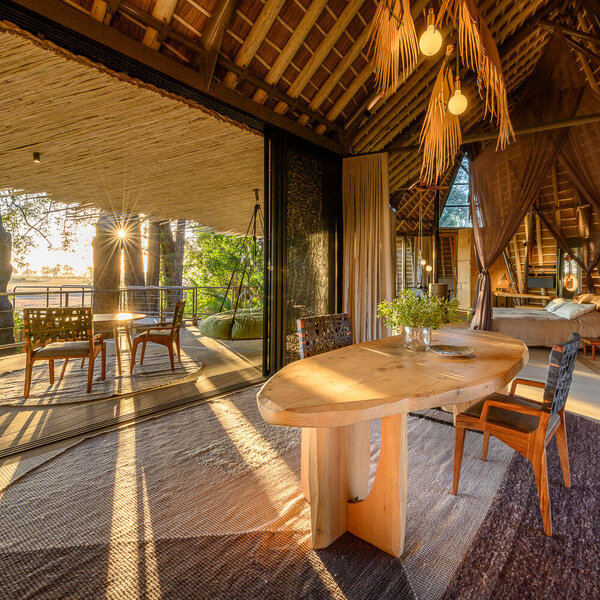
Expert Africa's gallery
When we travel we take lots of photos ourselves to give you a real and un-edited view of the safaris. See our 13 pictures and 1 videos of Jao Camp to get the candid view.
View galleryJao Camp: Our full report
Situated on a remote island in the middle of the large private Jao Reserve in Botswana’s Okavango Delta, ...
... Jao Camp is surrounded by open seasonal floodplains dotted with small islands. With a fusion style of Balinese and African décor, Jao is an imposing and luxurious camp which sprawls over roughly a kilometre among tall shady leadwood, African mangosteen and ebony trees.
Jao Camp is one of Wilderness Safaris’ original 'premier' camps, designed to be a cut above most others and commanding a price to match. Yet despite its opulence and grandeur, and its sometimes rather 'stiff' feel on arrival, the very friendly team here create a relaxed and informal atmosphere.
Jao's central area is arranged over two levels. The lower level features an intimate and tucked away sitting area, a small library, entertaiment lounge and a richly stocked curio shop, many of whose items are made by the camp’s staff. This opens out onto a large deck surrounding the firepit – a traditional gathering spot to swap stories after dinner – and decorated with probably the biggest wind chimes we've seen. From here, wooden walkways lead to not one but two separate plunge pools.
From this lower level, a polished rosewood staircase leads to the upper deck, whose original artworks and African wood sculptures (some by local carvers) are a real feature. This is the hub of the central area, with a large bar and lounge, and a dining area,complete with cappuccino machine. For the most part, guests dine around one central table, but they have the option to dine individually if preferred.
A winding wooden walkway, about 3m off the ground, connects to Jao's nine luxury suites, which are spread out on either side of the main building. Built of canvas and thatch, these extensive suites are tastefully decorated and very well appointed. One suite as a smaller self contained en-suite room sharing its platform making it ideal for families.
Running the length of each suite is an outside deck with a hammock and chairs – and a private sala where, weather permitting, you can organise a sleep-out.
Inside, the suites feel vast, rather like a small, open-plan, luxury apartment. Each has a sitting area with a comfy sofa and chair, a large wooden table with sherry and glasses, a writing desk, and a minibar/fridge as well as tea- and coffee-making facilities. A selection of international adaptors is handy, and you can call other suites or the camp office on the internal phone (though there is no outside line).
Double or twin beds are enveloped in a four-poster mosquito net, complete with an evening breeze cooling system. To maximise the view, the front wall of the suite is made of mosquito gauze and incorporates large folding doors.
A wooden partition, which doubles as a wardrobe, separates the room from the en-suite bathroom, with a reed blind that can be rolled down for additional privacy. Centre stage is an old-fashioned claw-foot bathtub – quite unusual for a Botswana safari camp – which is complemented by a freestanding washstand with twin basins, and a separate flushing toilet accessed through a sliding door. Jao Camp's suites have both indoor and outdoor showers, and you might forgive the lack of water pressure for the fantastic view afforded by the latter. And with a nod to fitness, you’ll also find dumbbells, a yoga mat and a skipping rope.
For a really rustic experience, try a night out in Jao’s sleep-out platform/hide, which really does put you close to nature. Accessible when water levels are low enough (generally from September to May), it makes a wonderful contrast to a night in the suites, but it is not for everyone! We advise booking this in advance, preferably as a part of a three-night stay.
Back in the realm of luxury, wander along a shady walkway to the Jao Spa. The extensive – if expensive – array of treatments includes massages, facials, manicures, pedicures and other beauty treatments, all using naturally inspired, chemical-free and eco-friendly products. There's nothing quite like listening to the sounds of the bush while having a relaxing massage – something that we were happy to indulge in on one visit when we met inclement weather.
There is also a small gym with a rowing machine, stationary bike, cross trainer, yoga mats, exercise ball and free weights.
On the activities front, Jao Camp comes into its own with some fantastic water-based options, such as mokoro trips and motorboat cruises. There’s also catch-and-release fishing on a seasonal basis.
Back on land, there are day and night 4WD safari drives. We have been astounded by the tremendous numbers of red lechwe grazing on a very pretty part of the Jao Flats (seasonal floodplains) – but aside from other species of antelope, we haven’t seen much else in the way of game close to camp. For the best game viewing, we’d advise joining an excursion to Hunda Island (you take a boat to the island and then hop into a 4WD vehicle). The largest swathe of dry land in the area, the island is home to giraffe, zebra, wildebeest and kudu, which in turn attract a variety of predators.
Guiding at Jao is, in our experience, usually very good. Over the years we’ve had several excellent guides whose expansive knowledge of birds, animal behaviour and flora has made for extremely interesting activities, often despite the lack of big game. One particular guide even managed to make grasses a fascinating topic!
Despite that, and while our team has had some good game sightings here over the years – including a large male lion swimming across a channel in front of out fishing boat on our most recent visit in September 2017 – Jao isn't a camp that majors on big game. Instead, come to stay in one of the prettiest parts of the Delta, for the trips out into the floodplains and channels, and for some wonderful birds.
Activities
4WD Safari
Birdwatching
Boat trip
Fishing
Guided walking safari
Helicopter
Mokoro
Night drive
Private activities
Families & children
- Attitude towards children
- Children aged of 13 years and over are welcome at Jao Camp. The camp may accept children aged 6–12, but private activities must be booked and this will be at an extra cost. Children younger than six may be accepted by special arrangement, but only if the entire camp is reserved for exclusive use.
- Property’s age restrictions
- Families with children aged between 6 and 12 are required to have their own private vehicle. Children are allowed on boat trips from the age of six years, but sleep-outs and mokoro excursions may be taken only from the age of 13 years.
- Special activities & services
- Guides will take children on a nature walk around camp, and Jao also offers craft activities designed for children.
- Equipment
- Jao offers family accommodation comprising two adjoining suites, each with its own bathroom. There is also a separate entertainment room that is furnished as a lounge and dining area, and is suitable for family dining and children's entertainment.
- Generally recommended for children
- Despite the elevated building and walkways, we think that in some ways Jao is one of the more welcoming camps for families with children. We particularly like the family-style accommodation and flexible dining options.
- Notes
- Parents should be very aware of the elevated platforms and walkways, which have open sides and can be very slippery when wet; they have not been designed with young children in mind! The camp is unfenced, and wildlife – including elephant – is known to wander through. The pools are unfenced, too, and the camp is in close proximity to open water. Children must be under the constant supervision of their parents.
Note that minimum age requirements mean that children are allowed on boat trips from the age of six years, but sleep-outs and mokoro excursions only from the age of 13 years.
Food & drink
- Usual board basis
- Full Board & Activities
- Food quality
- On our most recent visit in September 2017 as on previous visits, the standard and variety of food was very good. With advance notice, the camp can cater to vegetarians and most other special dietary requirements.
A light breakfast is laid out before guests depart on the morning activity. Expect a selection of cereals, fruit, yoghurt, muffins, and usually a cooked option if requested.
Brunch is usually served once guests have returned from the morning activity. You can help yourself to a selection of cheese and crackers, fresh bread, salads and fruit platters, but the plated main dish is brought to you. We had the choice of chicken stir fry, roasted vegetable baguette or a mushroom quiche. For pudding we enjoyed a fruit cup.
Afternoon tea is served just before heading out on the afternoon activity. You can expect both sweet and savoury options, such as fruit salad, chicken 'lollipops' with a selection of dips, milk tartlets and jam scones, accompanied by refreshing homemade lemonade with a twist of ginger, iced tea and iced coffee.
Dinner is usually a three-course plated meal, with a choice of two starters – such as grilled mushrooms with brie or red pepper and pear soup; two main dishes – salmon with orange sauce or pork with a pepper sauce, both served on a bed of basmati rice, with patty pan (a type of squash) and beetroot. For dessert there is the choice of a fruit platter, a cheese platter or the speciality of the day, perhaps a custard slice. On Fridays, however, the lodge puts on a traditional braii (barbecue), which on our last visit started with cauliflower soup. We went on to eat our fill of beef fillet, lamb chops, and boerewors with a selection of salads, before rounding off our meal with a chocolate pudding. - Dining style
- Group Meals
- Dining locations
- Indoor and Outdoor Dining
- Further dining info, including room service
- Although not officially offered, room service can sometimes be arranged if you stay in one of the two suites closest to the main area – numbers 4 and 5. (With a walkway almost a kilometre long, food delivered to the furthest rooms would arrive rather cold!) A popular request is breakfast on your room deck – although this should be arranged the night before. The suites have an internal phone system to call the camp's main office with any reasonable requests.
- Drinks included
- Bottled water, soft drinks, local beers and spirits and a selection of (usually) South African red and white wines are included. Champagne and imported wines and spirits will cost extra. The camp has a bar that is stocked much more comprehensively than most, and can order in special requests if advance notice is given.
Our travellers’ wildlife sightings from Jao Camp
Since mid-2018, many of our travellers who stayed at Jao Camp have kindly recorded their wildlife sightings and shared them with us. The results are below. Click an animal to see more, and here to see more on our methodology.

100% success

100% success

100% success

100% success

67% success

67% success

67% success

67% success

67% success

33% success

33% success

0% success

0% success

0% success

0% success

0% success

0% success

0% success
Getting there
- Location
- Okavango Delta Safari Reserves, Botswana
- Ideal length of stay
- 2–3 nights
- Directions
- Access is by light aircraft transfer to Jao airstrip, followed by a short 4WD drive to Jao.
- Accessible by
- Fly-and-Transfer
Special interests
- Family safaris
- For those who want a luxury family holiday Jao can be a wonderful option with a range of flexible activities and a habituated mongoose clan is always a source of entertainment. Families with children aged 6–12 usually need to book a private vehicle.
- See ideas for Family safaris in Botswana
- Honeymoons
- Jao Camp is a lovely destination to include in a Botswana honeymoon. Slow paced and flexible, it offers tranquil mokoro trips and one of the best spas in the Delta. With beautiful scenery and stunning suites, this is an ideal place to relax and indulge.
- See ideas for Honeymoons in Botswana
- Birdwatching safaris
- Jao Camp offers superb birding, include wetland specialities such as yellow-billed and woolly-necked storks, hadeda ibis, painted snipe, slaty and black egret, sacred ibis, wattled crane, goliath heron and Pel's fishing owl.
- See ideas for Birdwatching safaris in Botswana
- Wellbeing retreats
- The Jao Spa has single and double treatment rooms offering a vast array of pampering experiences – massages, facials, manicures, pedicures and so on. For some serious indulgence in Botswana, add this to your list.
- See ideas for Wellbeing retreats in Botswana
- Luxury safaris
- Jao is a camp to be experienced for itself as much as for its beautiful surroundings. The large suites are luxurious and service levels are high with the aim of offering a more personal, adaptable experience. The spa is also very good, a great way to relax on a luxury safari holiday.
- See ideas for Luxury safaris in Botswana
Sustainability
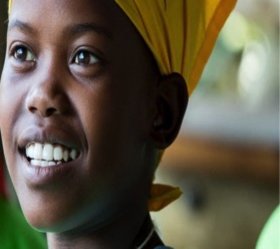
Eco-training camps for children
Jao Camp is situated in the heart of the Okavango Delta where each tent is shaded by greenery and is designed in a minimalistic, yet intimate style giving guests the feeling of a complete immersion in the African wildlife.
Boasting itself as environmentally sustainable, the accommodation runs electricity via solar panels and inverters while wastewater is treated in an Above Ground Sewage Plant before being released into the environment.
The camp also borders the 5000m2 Moremi Game Reserve which harbours various species of wildlife, but also a few villages.
By actively financing the initiatives of Children in the Wilderness Botswana, Jao Camp facilitates Eco-Mentor Training programmes and Eco-Club projects for nearby communities. The initiative hopes to inspire children to become future conservationists who protect the local environment. The Eco-Mentor Training programme enables local community members, local school teachers and Wilderness Safaris camp staff to enhance their skills, and improve their environmental understanding to teach workshops on wildlife and eco-system conservation.
The programme also promotes tourism as a key resource to achieve community development. Eco-camps are hosted annually and over the course of 4 days 12-24 children between the ages of 10 and 17 experience educational and fun-filled activities, including lessons, games, practical sessions and wildlife encounters.
See more great sustainability projects in Botswana
Communications
- Power supply notes
- Jao runs on a combination of solar power and generator.
- Communications
- There are limited communications at Jao but WiFi is available in the entertainment lounge.
- TV & radio
- There is no TV or radio.
- Water supply
- Other
- Water supply notes
- Water is drawn from the Delta and treated in a reverse osmosis plant, so it is perfectly safe to drink.
Health & safety
- Malarial protection recommended
- Yes
- Medical care
- The camp managers are first-aid trained, and a first-aid kit is kept on site. There is a nurse in Maun who can be contacted for medical advice, and is on call 24 hours a day. In the event of an emergency, guests can be airlifted out, but please note that it is only possible to fly out of camp during daylight hours as the bush airstrips do not have any lighting at night.
- Dangerous animals
- High Risk
- Security measures
- Guests are escorted to and from their suites after dark.
- Fire safety
- Fire extinguishers are positioned in all suites and in the main area.
Useful info
- Disabled access
- Not Possible
- Laundry facilities
- A full laundry service is included; wherever possible, items will be returned to guests on the same day.
- Money
- All suites are equipped with small electronic safes. There are no money-exchange facilities.
- Accepted payment on location
- MasterCard and Visa credit cards are accepted; Diners and Amex are not. Cash in the form of South African rand, GB sterling, US dollars, euros and Botswana pula is accepted.
Plan and book your trip with Expert Africa
All of our trips are tailor-made, so we'll always adapt them to suit you. Talk to an Expert and let us plan and arrange your perfect trip.

Talk to an Expert
Call or email us now! We’ll match you with the Specialist in our team who is best suited to help you. Then together we can start planning your trip.

Set up your itinerary
Based on our experience and your ideas, your specialist will create a detailed, costed itinerary. We’ll refine it together, until we have a trip that you’re perfectly happy with.

Prepare for your trip
The same Specialist will make the seamless arrangements for your trip, send you detailed travel documents, and be available to answer any questions before you depart.

Travel with peace of mind
After you set off, you’ll be cared for by our partners in Africa, most of whom have worked with Expert Africa for decades. And if you ever need us urgently, we’re available 24/7.

When you return
We love to learn about your trip, and so will always be grateful if you’ve the time to give feedback to your Specialist when you return.
Jao Camp's location
Look closer at the environment and surroundings of Jao Camp.
Excursions from Jao Camp
Optional extra day-trips and excursions possible whilst you're staying at Jao Camp. Talk to us: these are usually best arranged before you go.
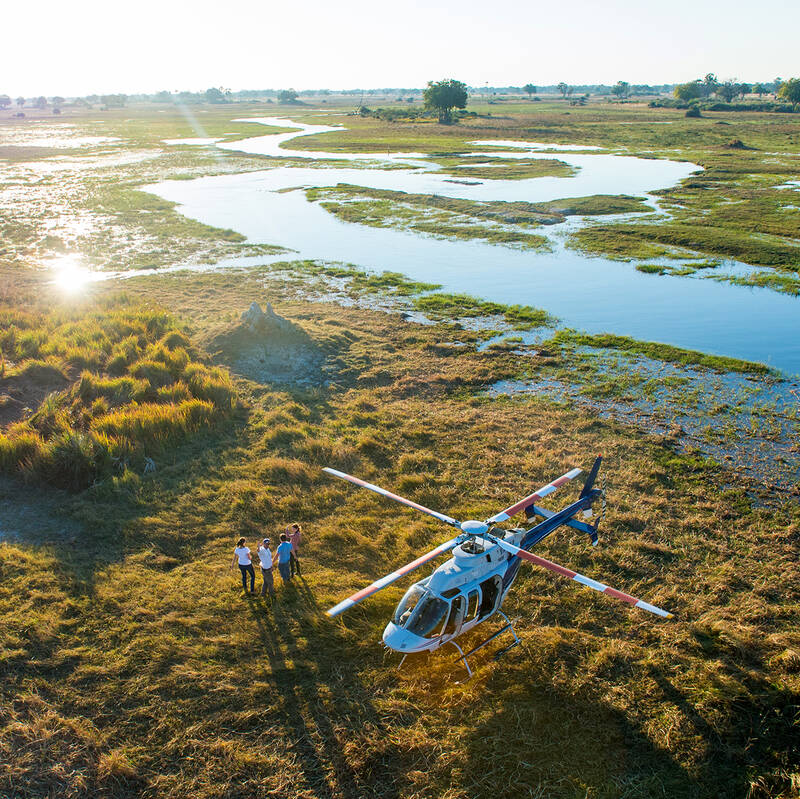
Helicopter Flight - Botswana
Various: from 30 minutes to half a day.
Low-flying, agile and offering superb views, helicopters are an ideal way to move around the Okavango Delta.You can use them instead of fixed-wing inter-lodge transfers or as an addition to other wildlife watching activities, and of course, helicopters can hover to allow that perfect pic, whereas fixed-wings can’t.
More about Helicopter FlightOther lodges in Okavango Delta Safari Reserves
Alternative places to stay in this same area.
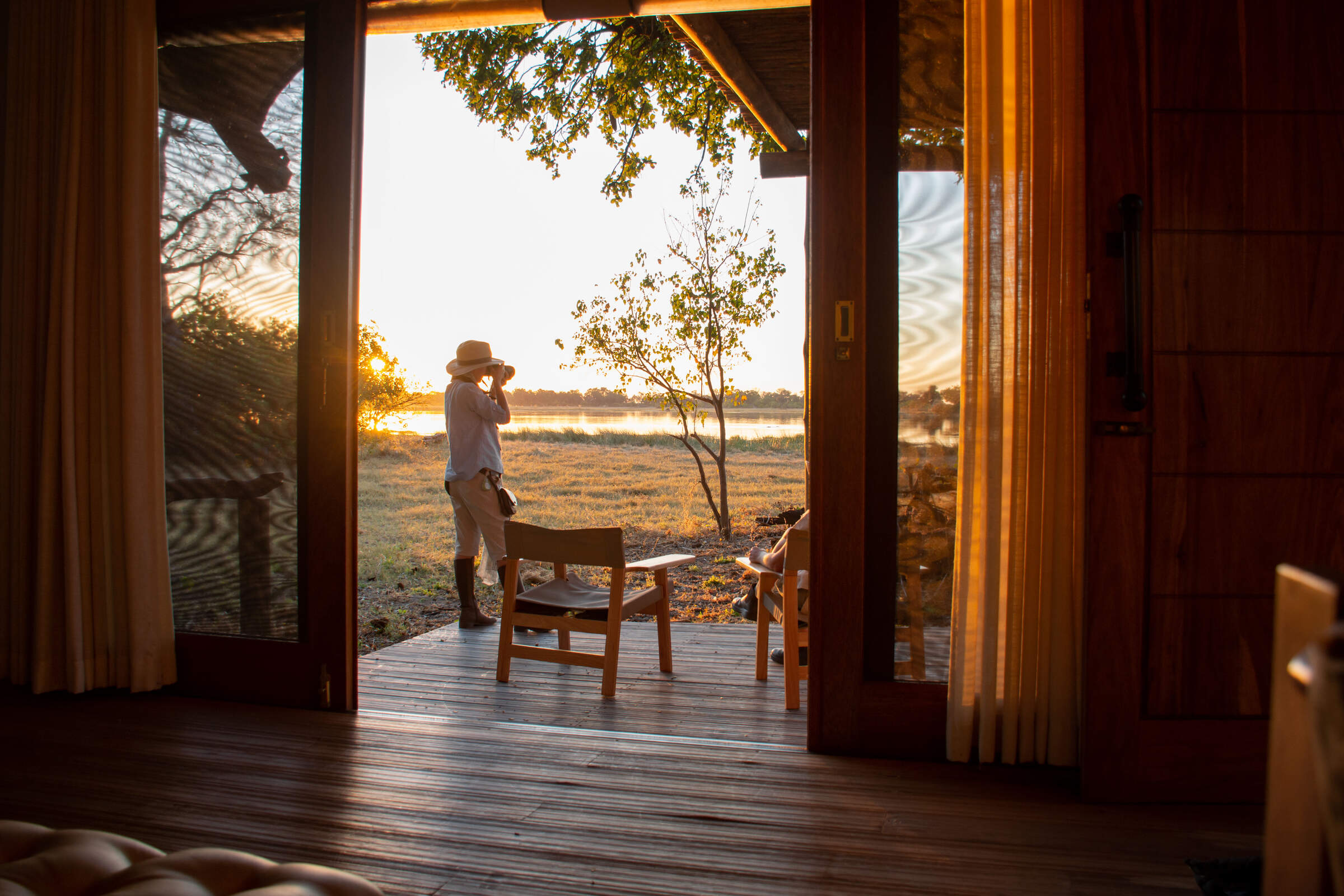
Kwara Camp
Kwara Camp's private reserve boasts land and water activities year-round, with excellent game-viewing opportunities and access to permanent channels of the north-east Okavango Delta.
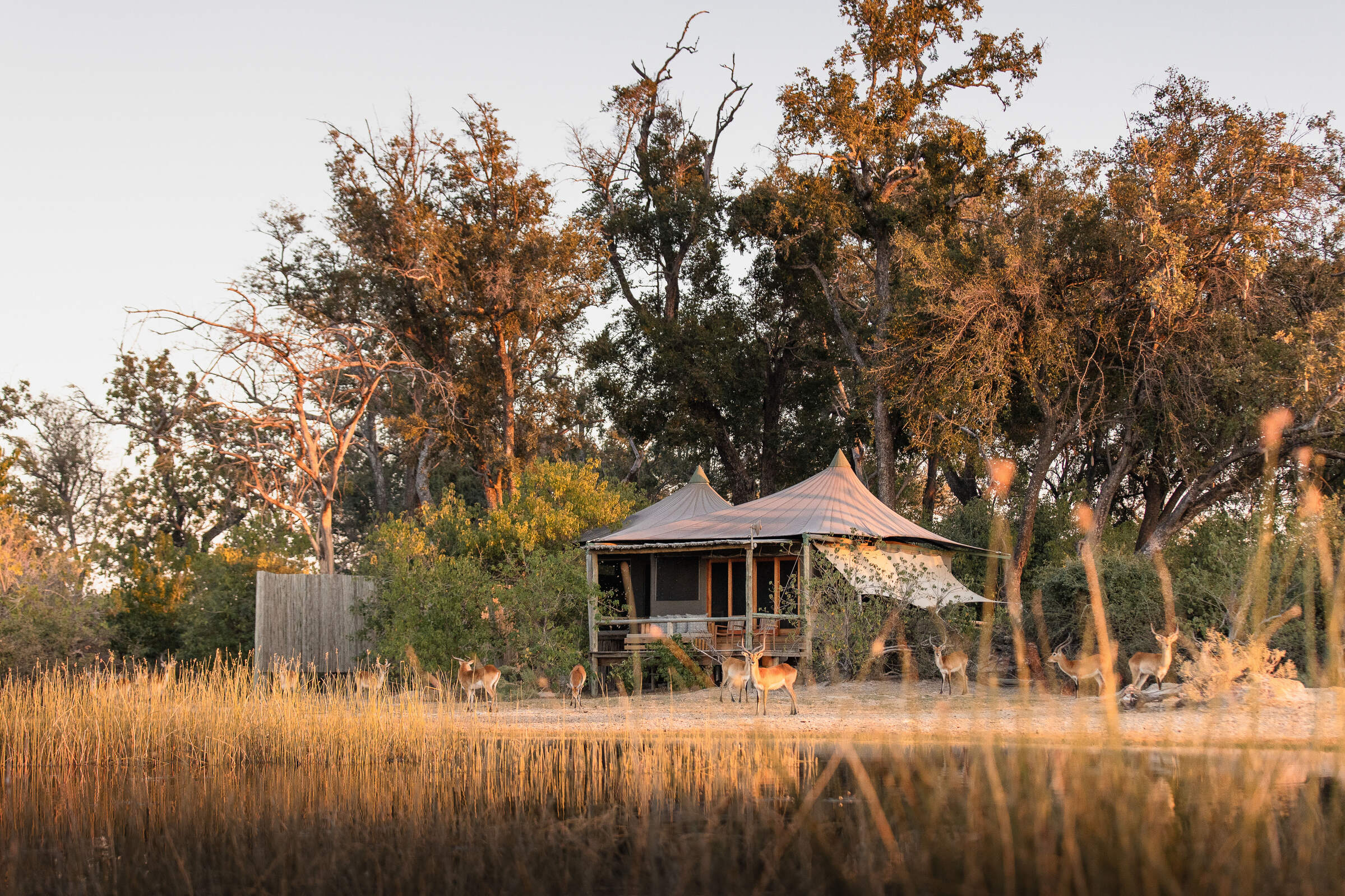
Little Vumbura
On a secluded island within a private reserve, Little Vumbura combines superb game viewing with a broad diversity of habitats in a truly picturesque setting.
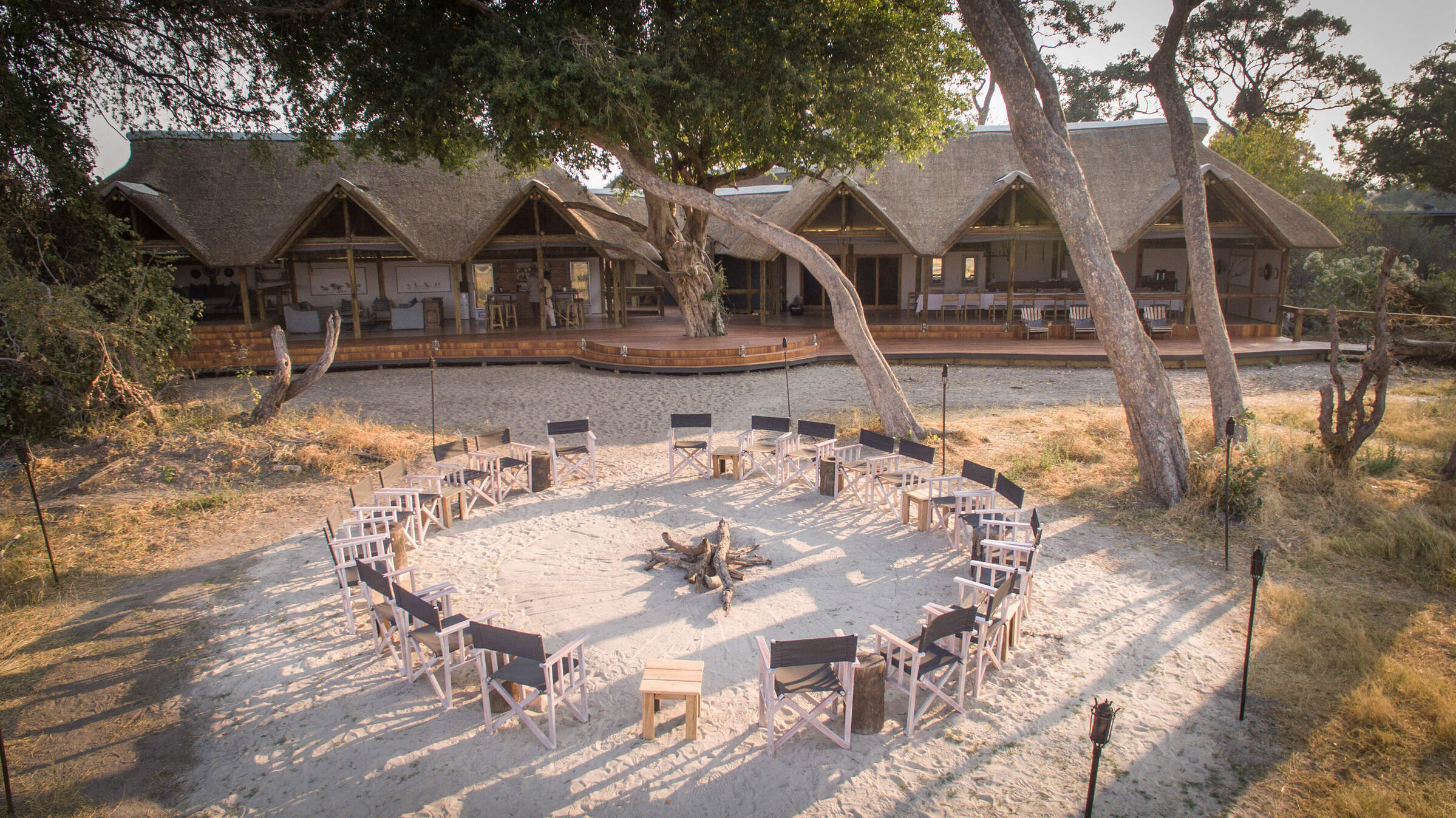
Splash Camp
Set in the Kwara Reserve, offering superb wildlife viewing year-round, Splash offers both land and water activities led by guides with a particular knack for tracking big game.
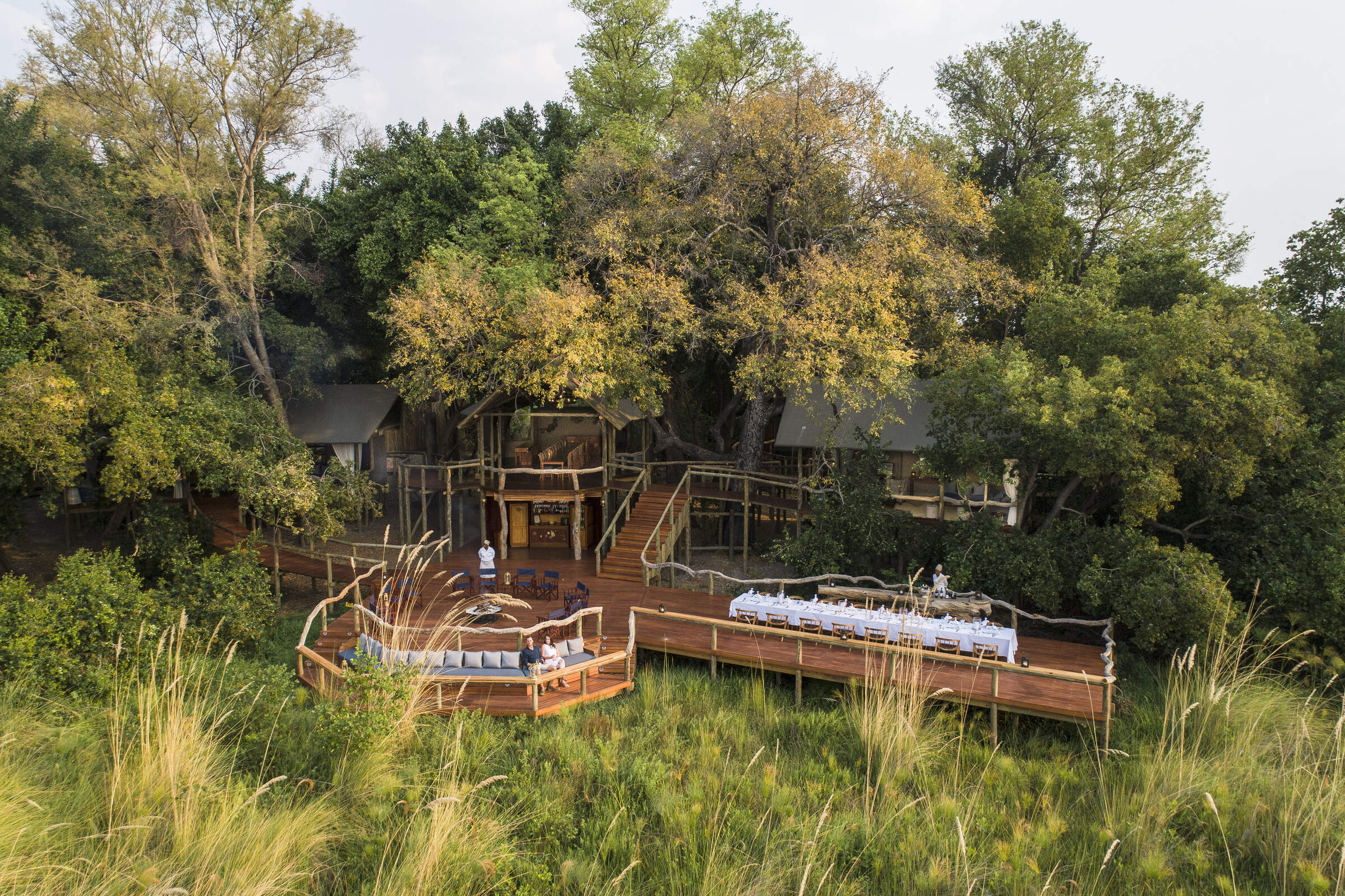
Shinde Camp
With experienced staff and a wealth of activities, Shinde offers a traditional safari in an exceptionally varied and wildlife-rich environment.
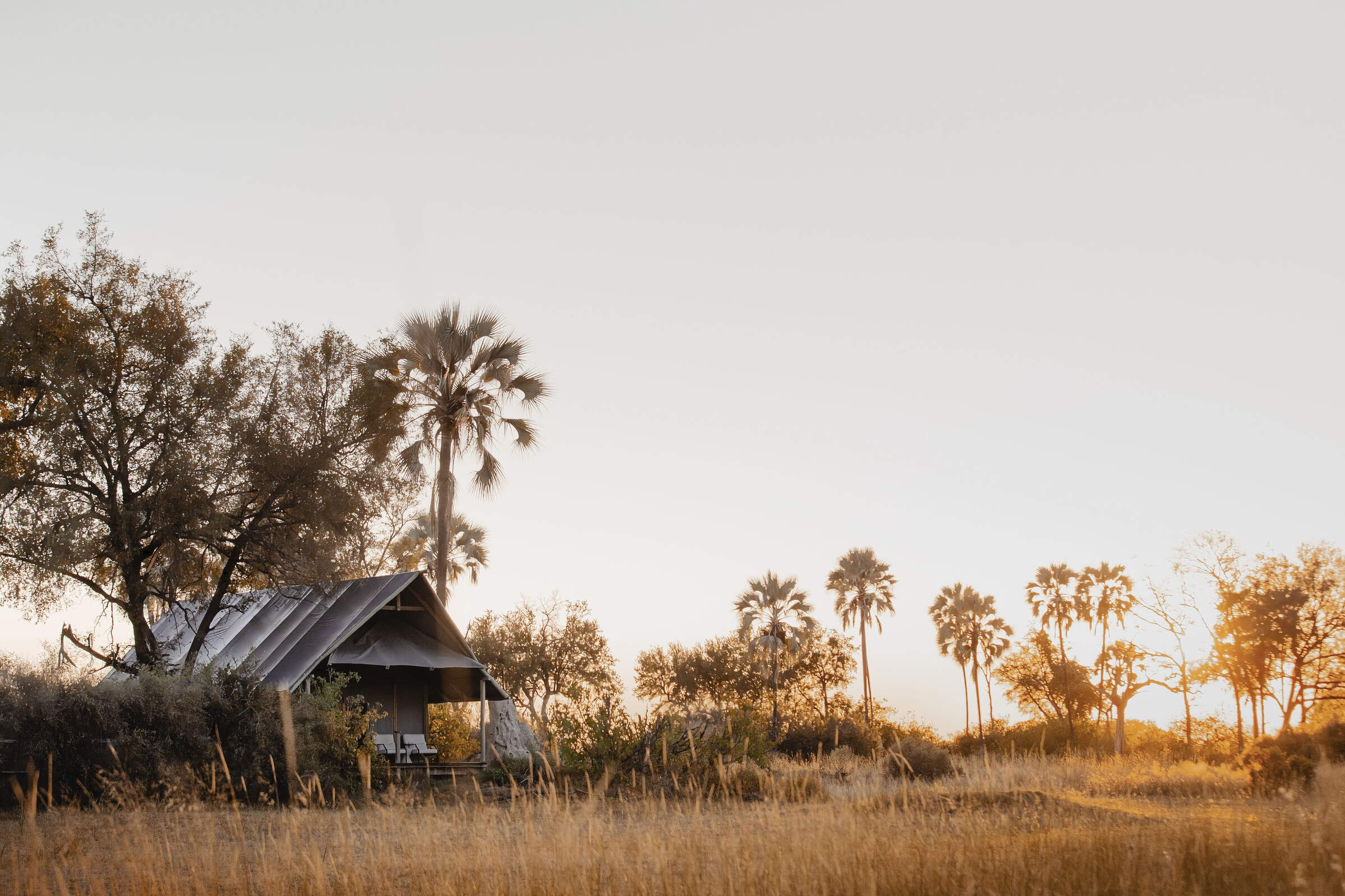
Chitabe Lediba
Chitabe Lediba, in Botswana's southern Okavango Delta, is a small family friendly safari camp; it offers great dry-land safaris and in our experience consistently delivers good game sightings.
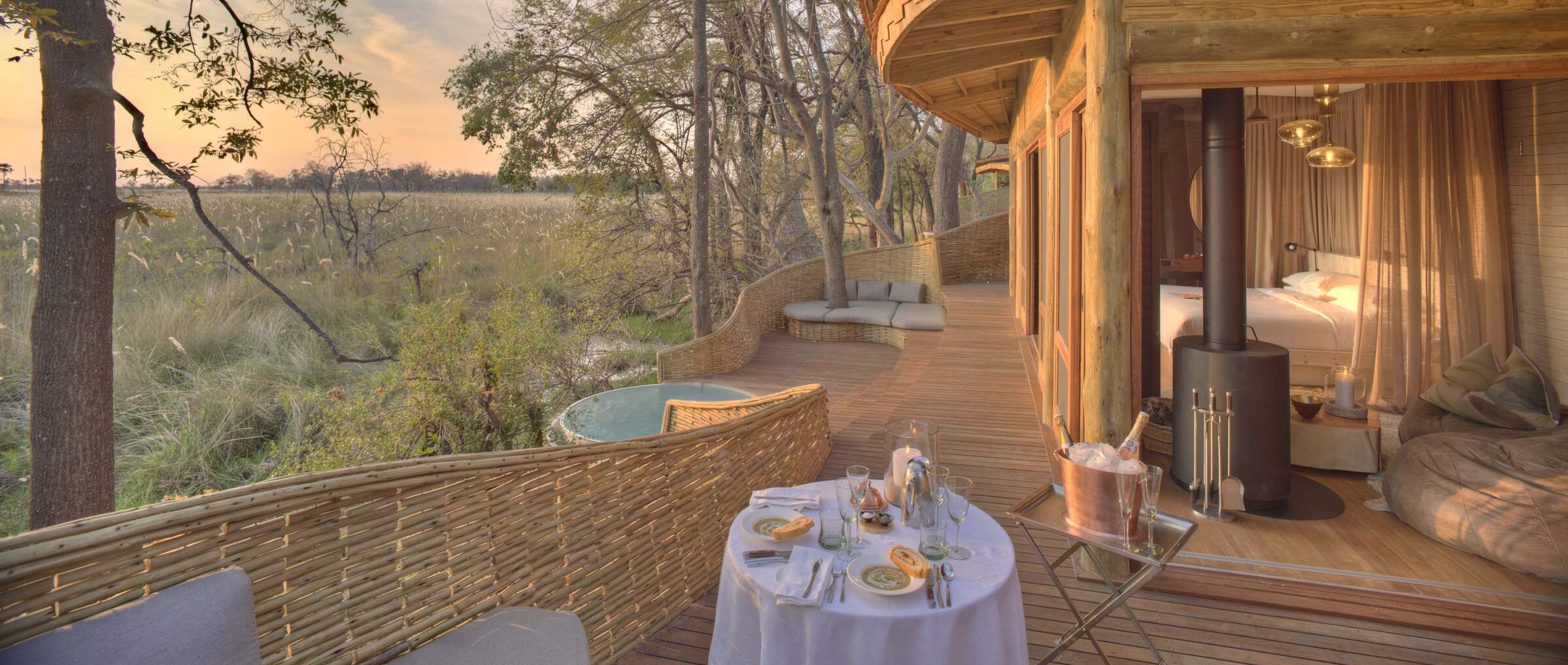
Sandibe Safari Lodge
The luxurious Sandibe Okavango Safari Lodge lies in a private concession in the heart of the Okavango Delta, beside Moremi Game Reserve, with superb big-game viewing.
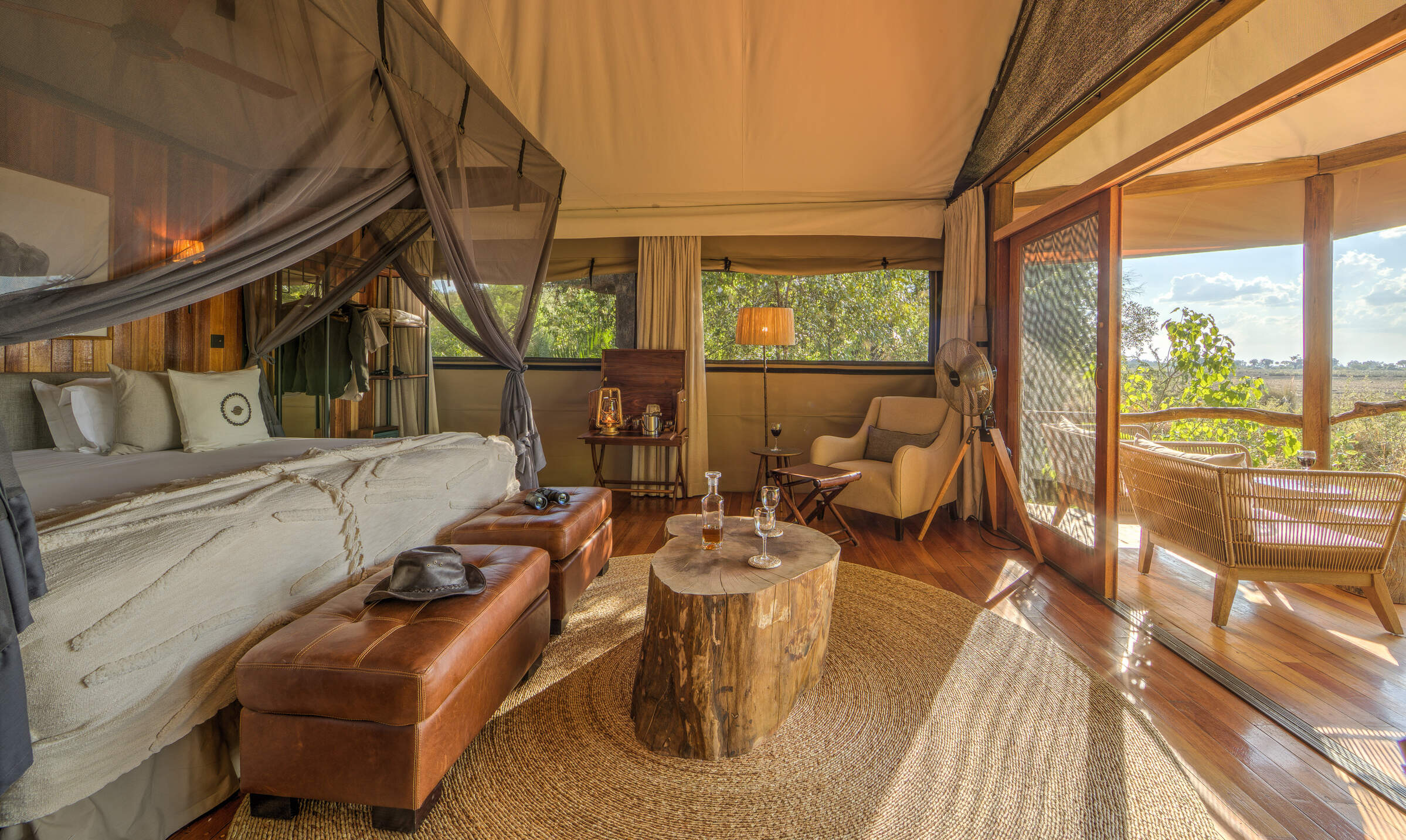
Kanana
In a beautiful part of the Delta, Kanana focuses on fantastic water activities and birding – including exclusive access to an impressive heronry.
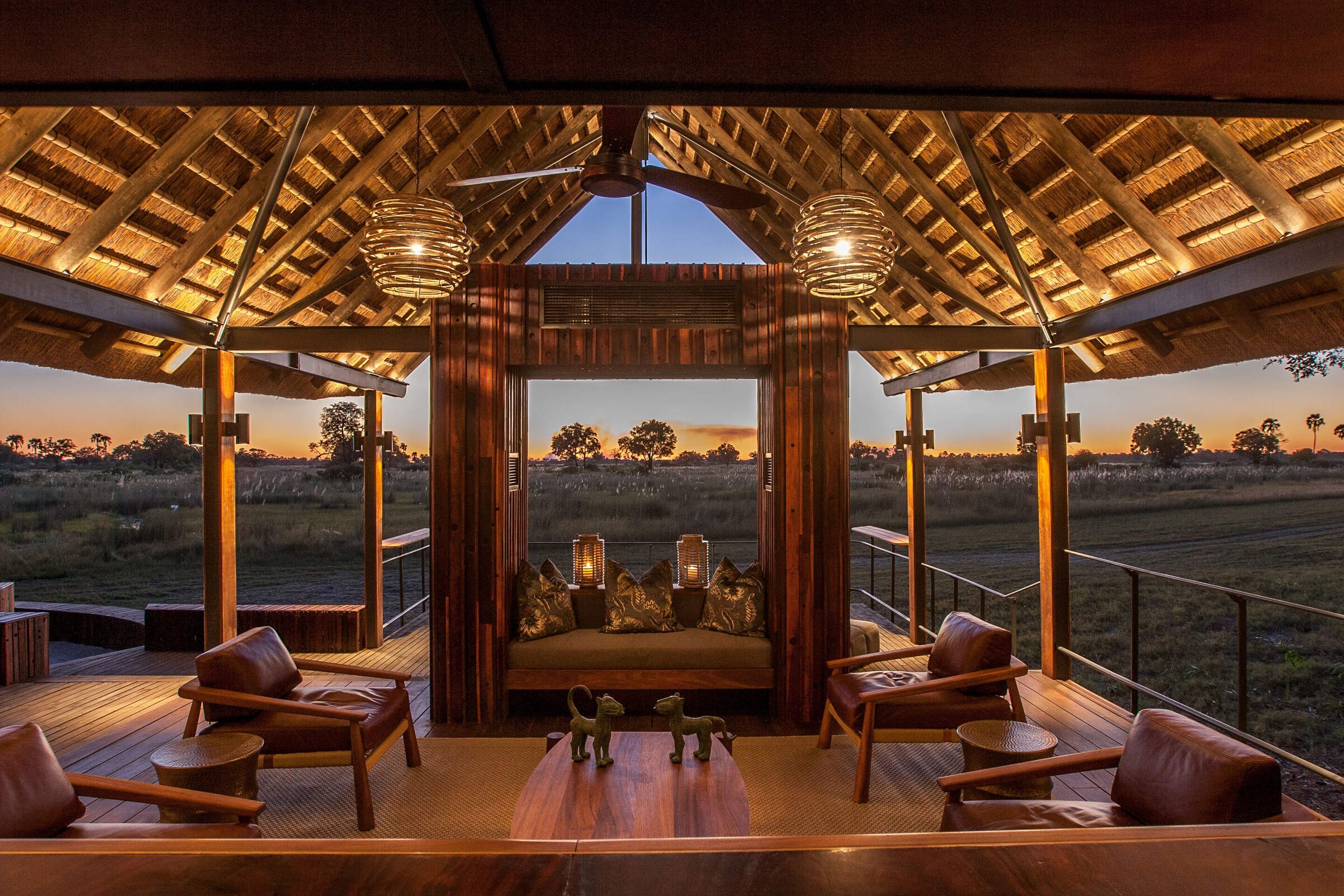
Chitabe Camp
In the southern Okavango Delta, the excellent Chitabe Camp concentrates on dry-land safaris in an area that we've found particularly good for wild dog sightings.
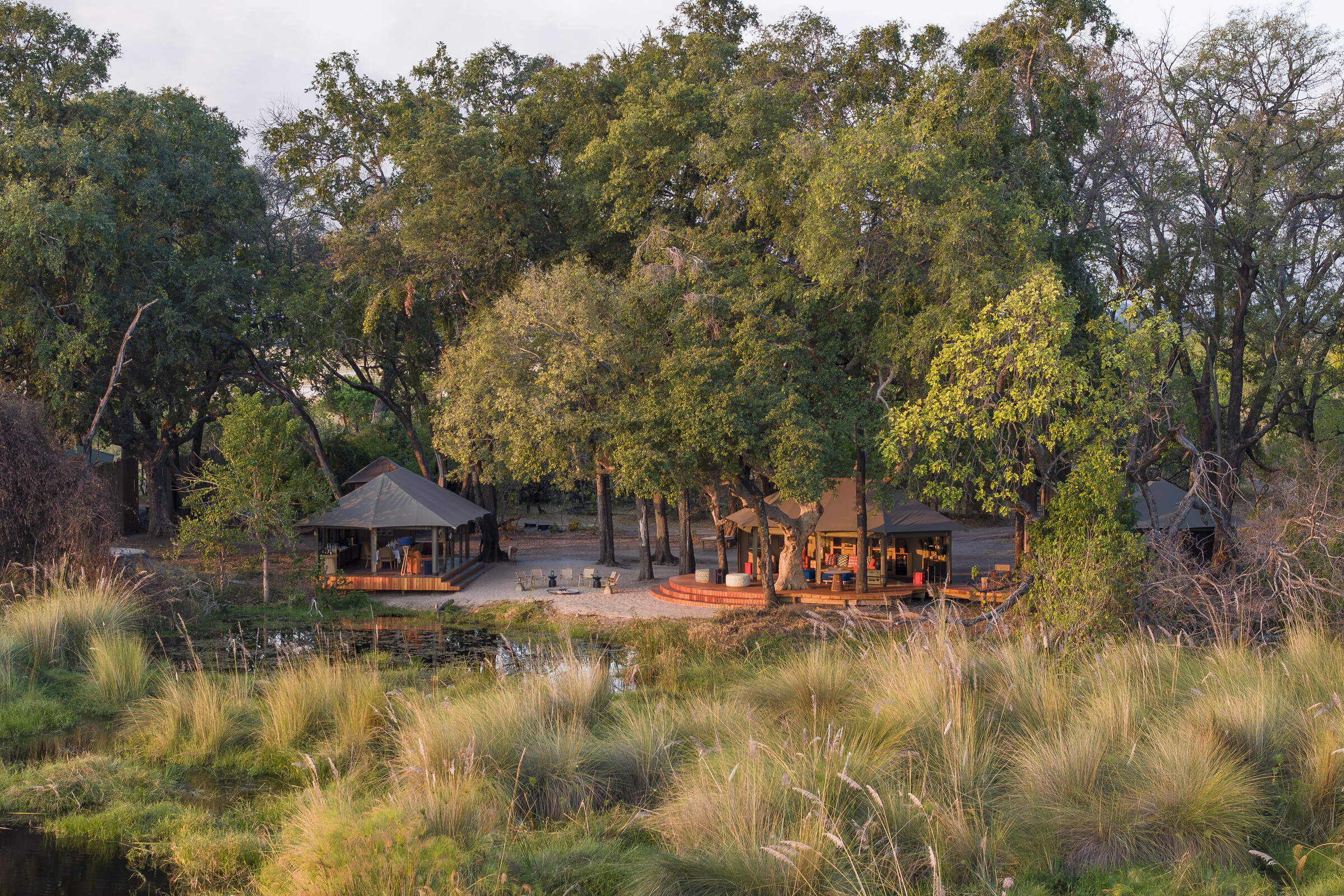
Shinde Footsteps
Small and simple, but comfortable, Shinde Footsteps focuses on walking safaris as well as game drives; it also runs a special children's programme so is particularly suitable for families.
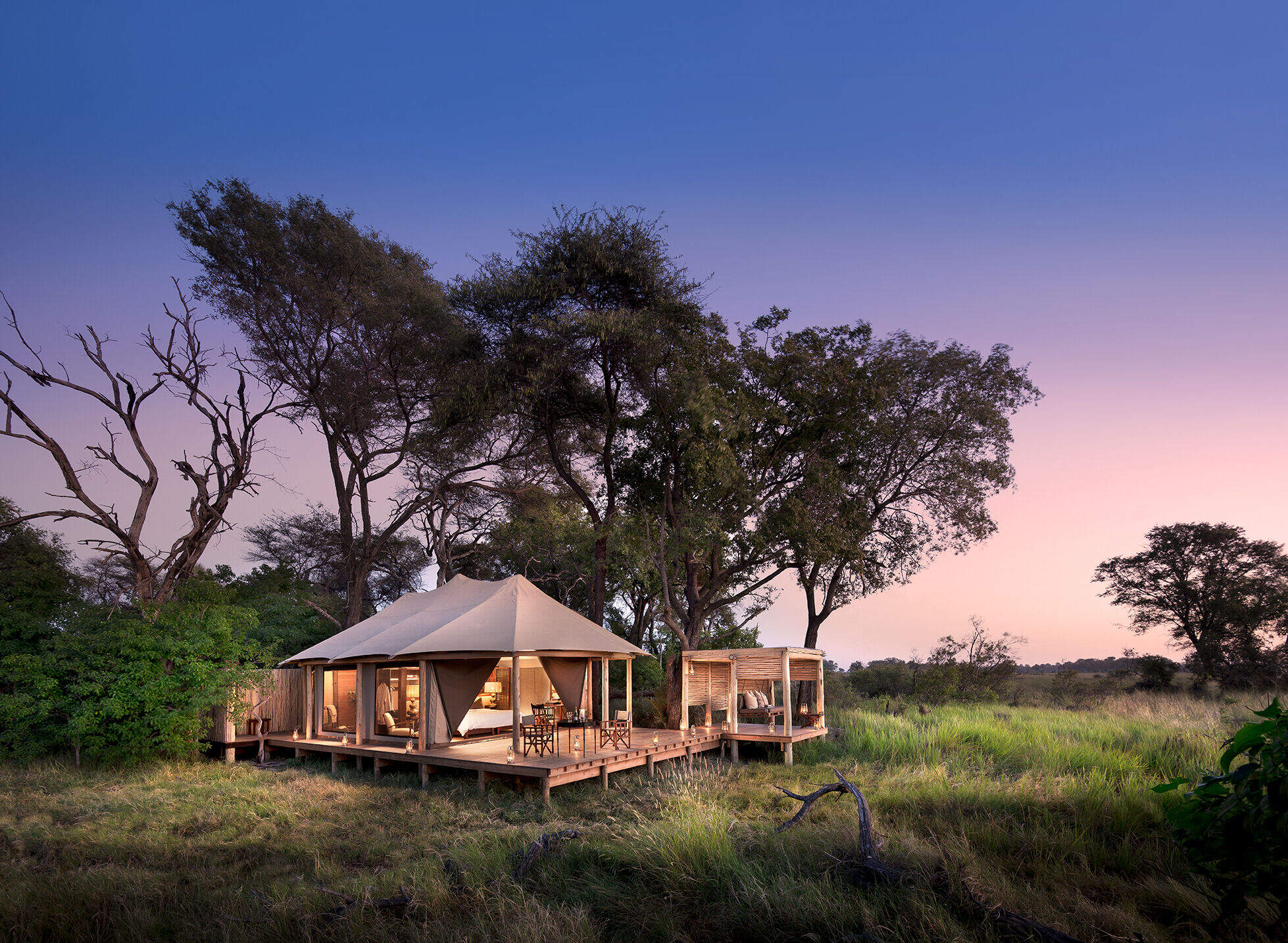
Nxabega Tented Camp
Nxabega offers a selection of both land- and water-based activities, plus very good guiding, food and service, but game viewing can be somewhat erratic.
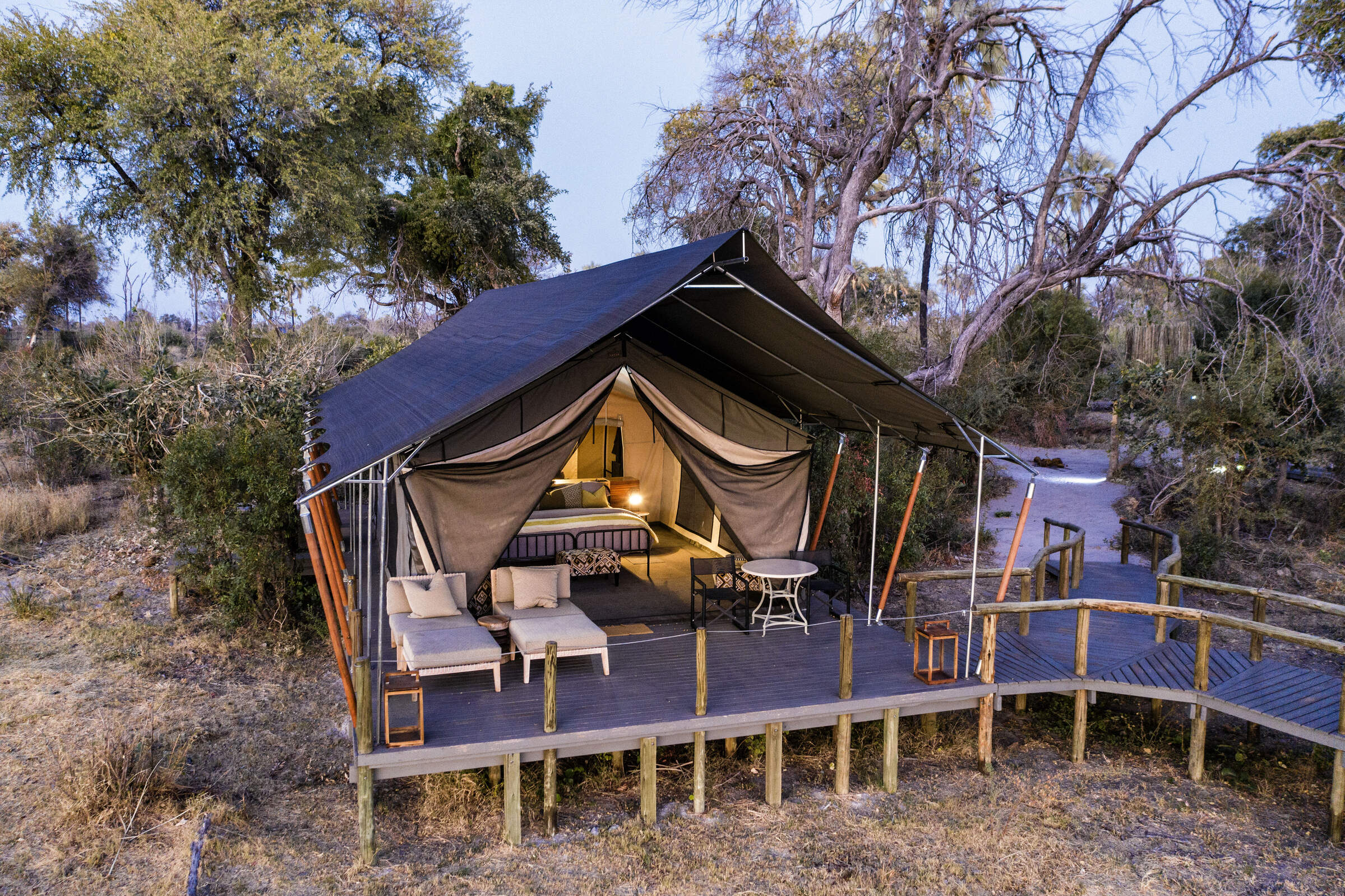
Gomoti Plains
Overlooking a tributary of the Gomoti River, Gomoti Plains Camp is a classically designed camp with very comfortable tents in a good game-viewing area.
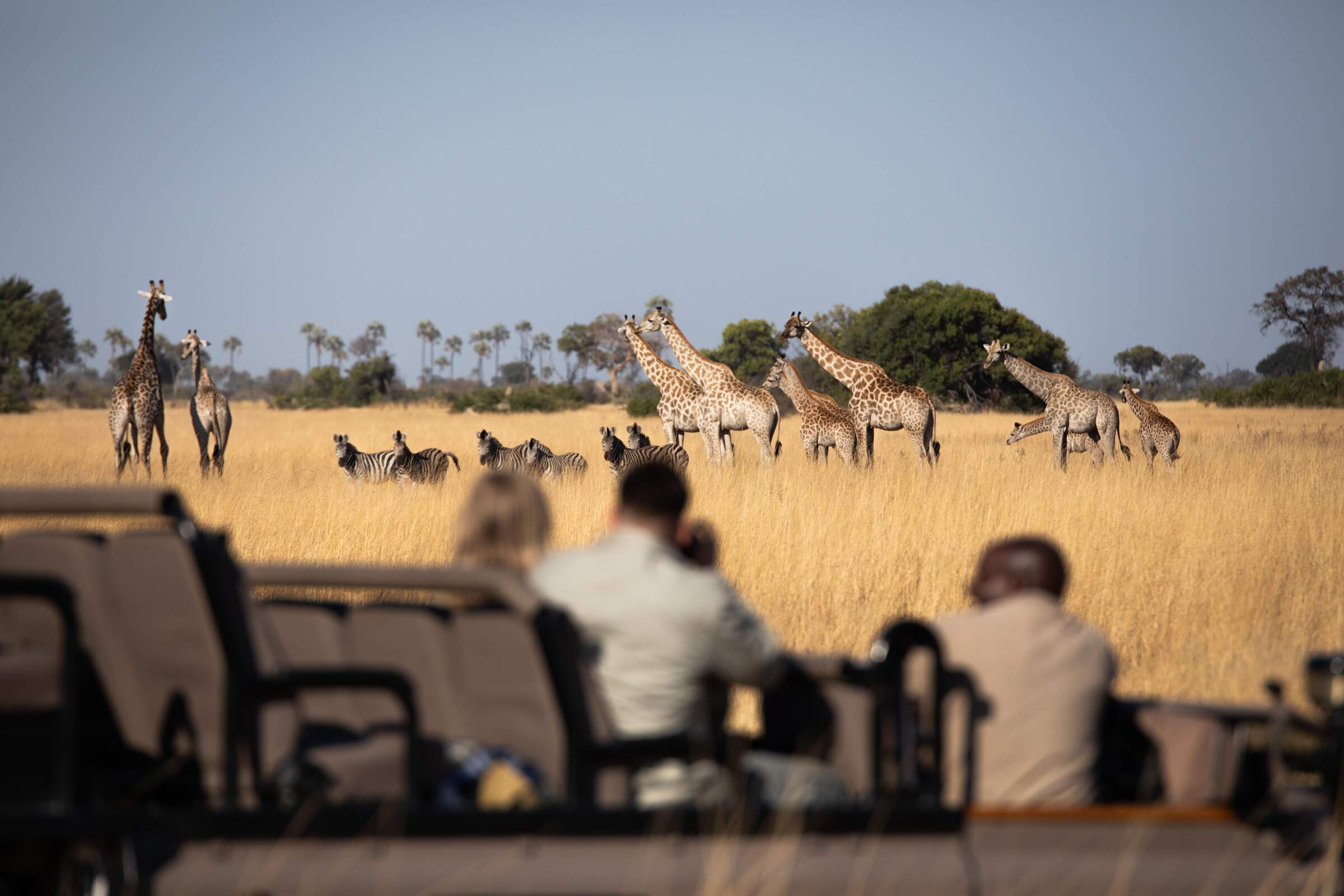
Tubu Tree Camp
A traditional tented camp with a distinctive tree-house feel, Tubu Tree offers some of the best game viewing in the Jao Reserve.
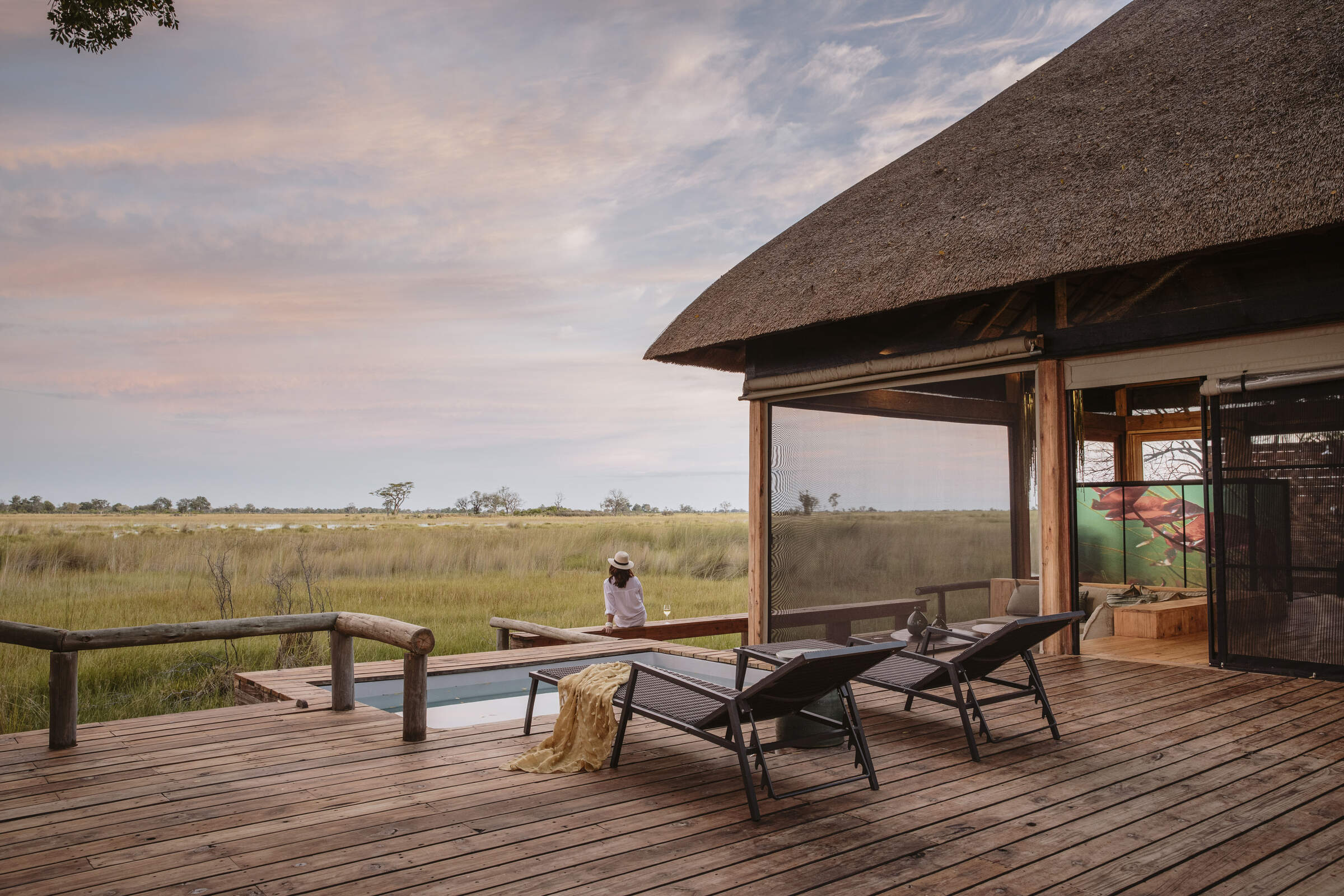
Vumbura Plains
Indulgently stylish and luxurious, Vumbura Plains offers superb game viewing and birding on an exceptionally varied private reserve.
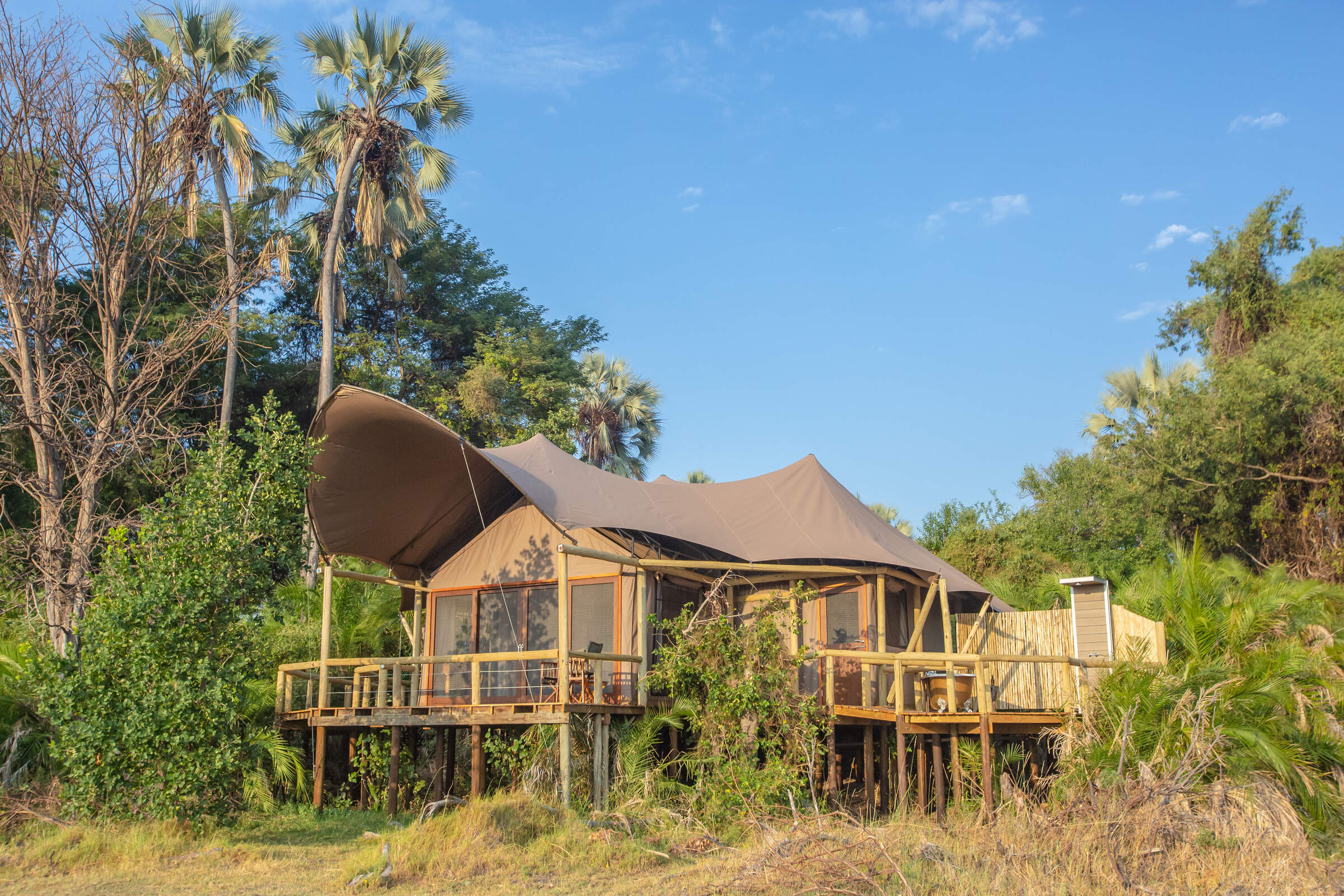
Jacana Camp
Jacana Camp is a small safari camp with an informal island feel; it is ideal for water-based activities in the Delta and offers excellent birdwatching.
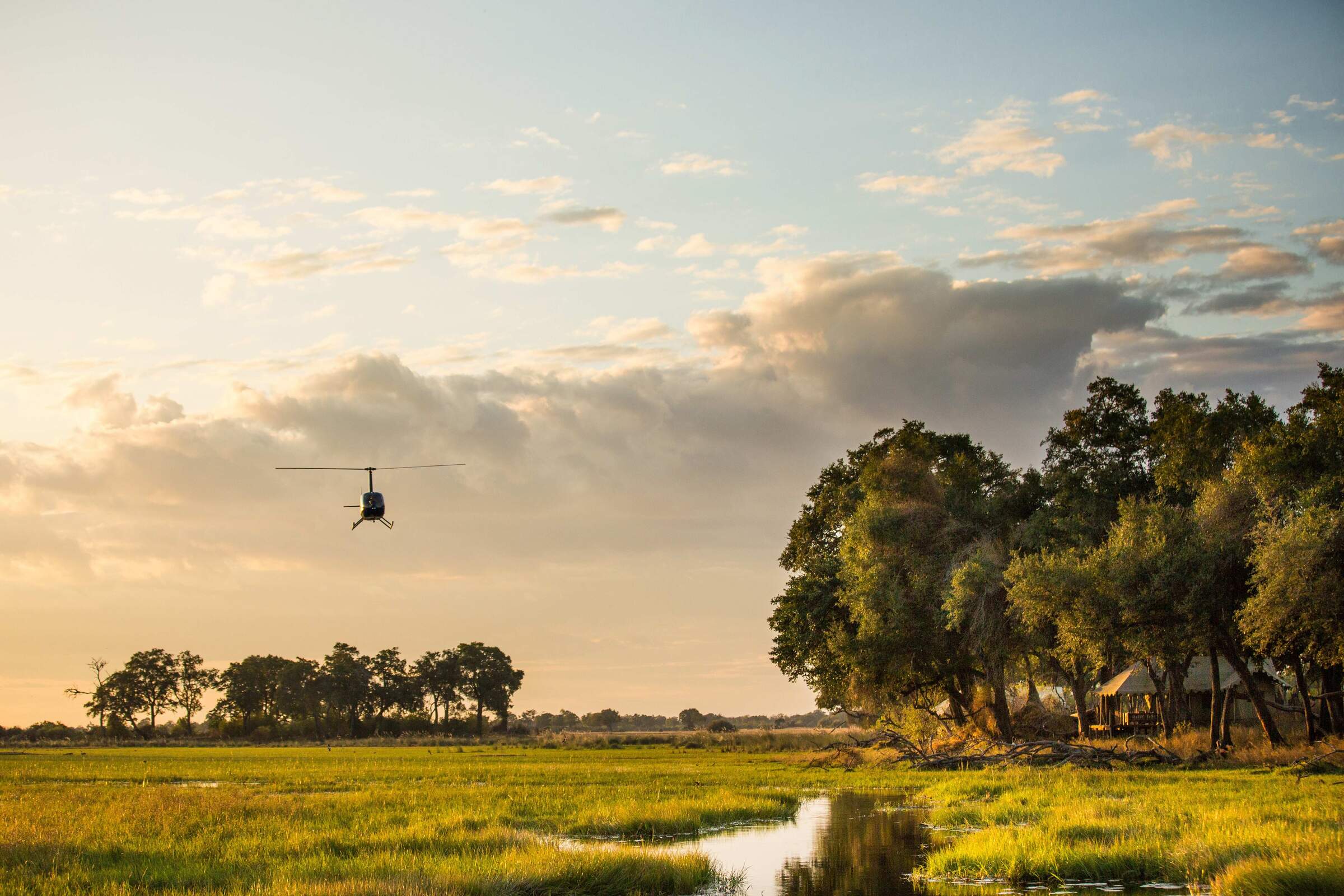
Duba Explorers Camp
Intimate and elegant, Duba Explorers Camp promises a firm safari focus in a remote corner of the Okavango, led by a team who value the highest guiding and hosting standards.
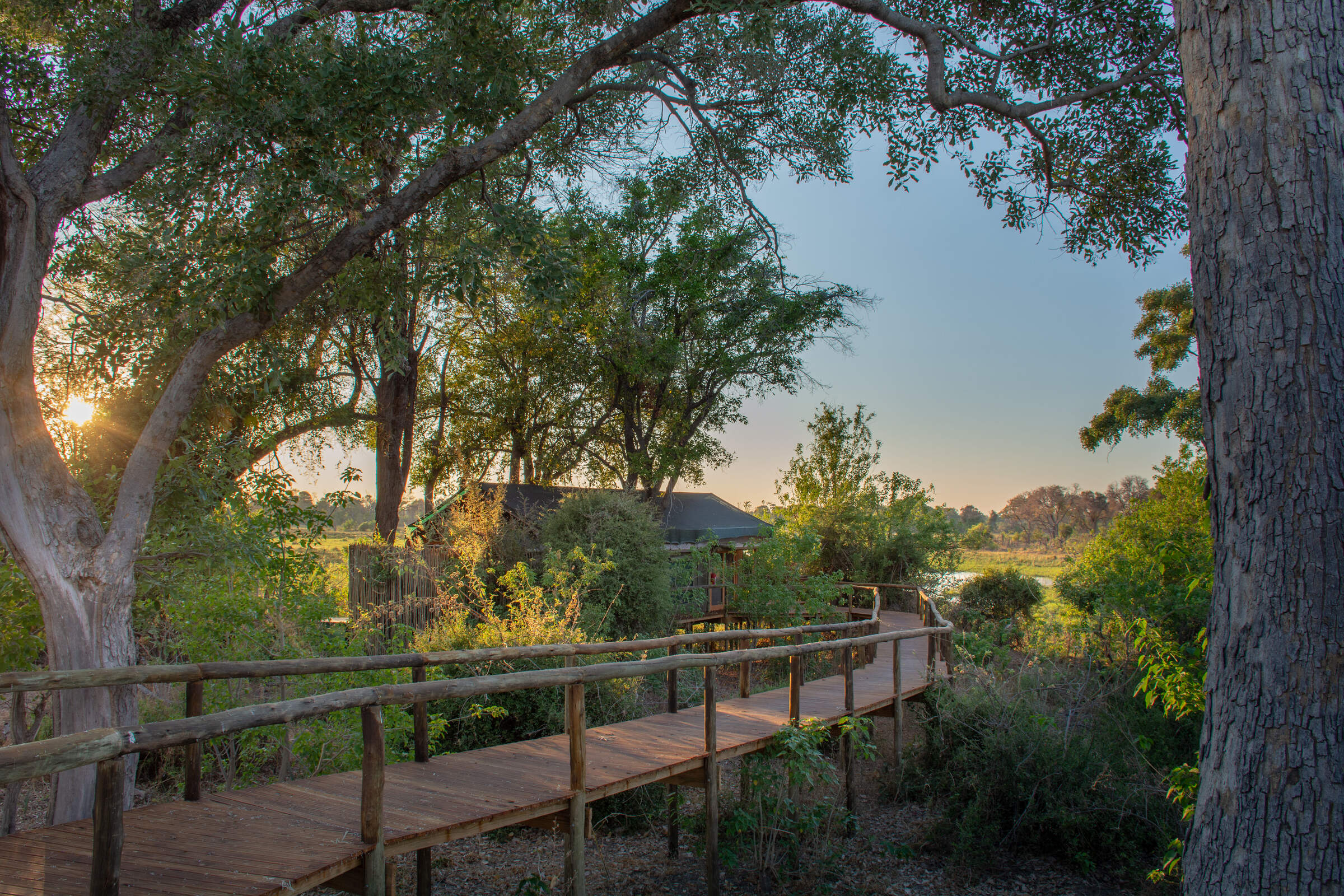
Mma Dinare
Beautifully located in a private concession overlooking the Gomoti River, the traditional Mma Dinare is very well-priced for the Okavango Delta.
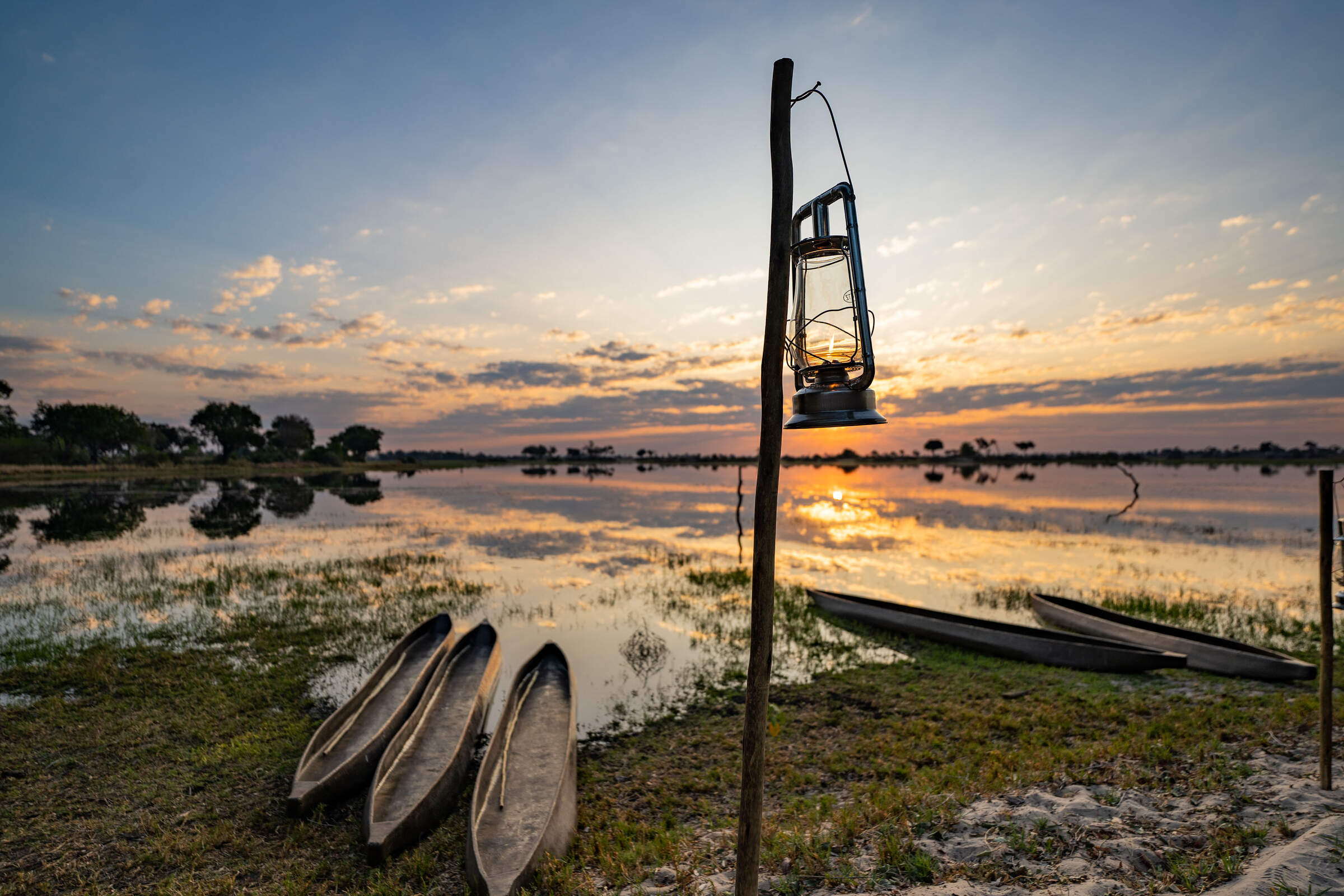
Pom Pom Camp
Amidst stunning Okavango Delta scenery, Pom Pom offers idyllic mokoro trips in season, great birdwatching, and increasingly good big-game sightings, especially leopards.
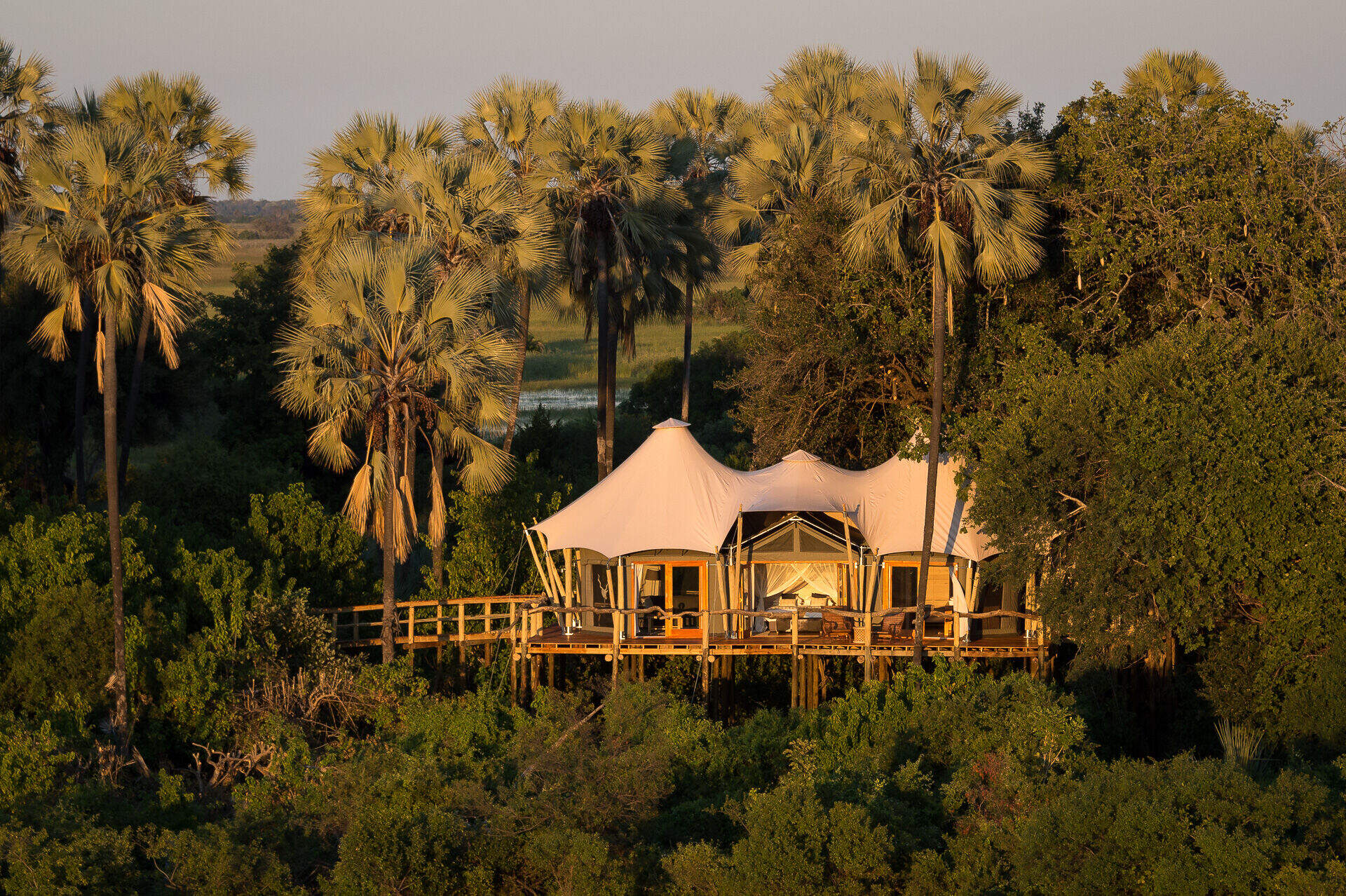
Kwetsani Camp
Deep in the Delta, overlooking a floodplain, Kwetsani Camp is a small, high-end camp with good access to areas for land and water-based activities.
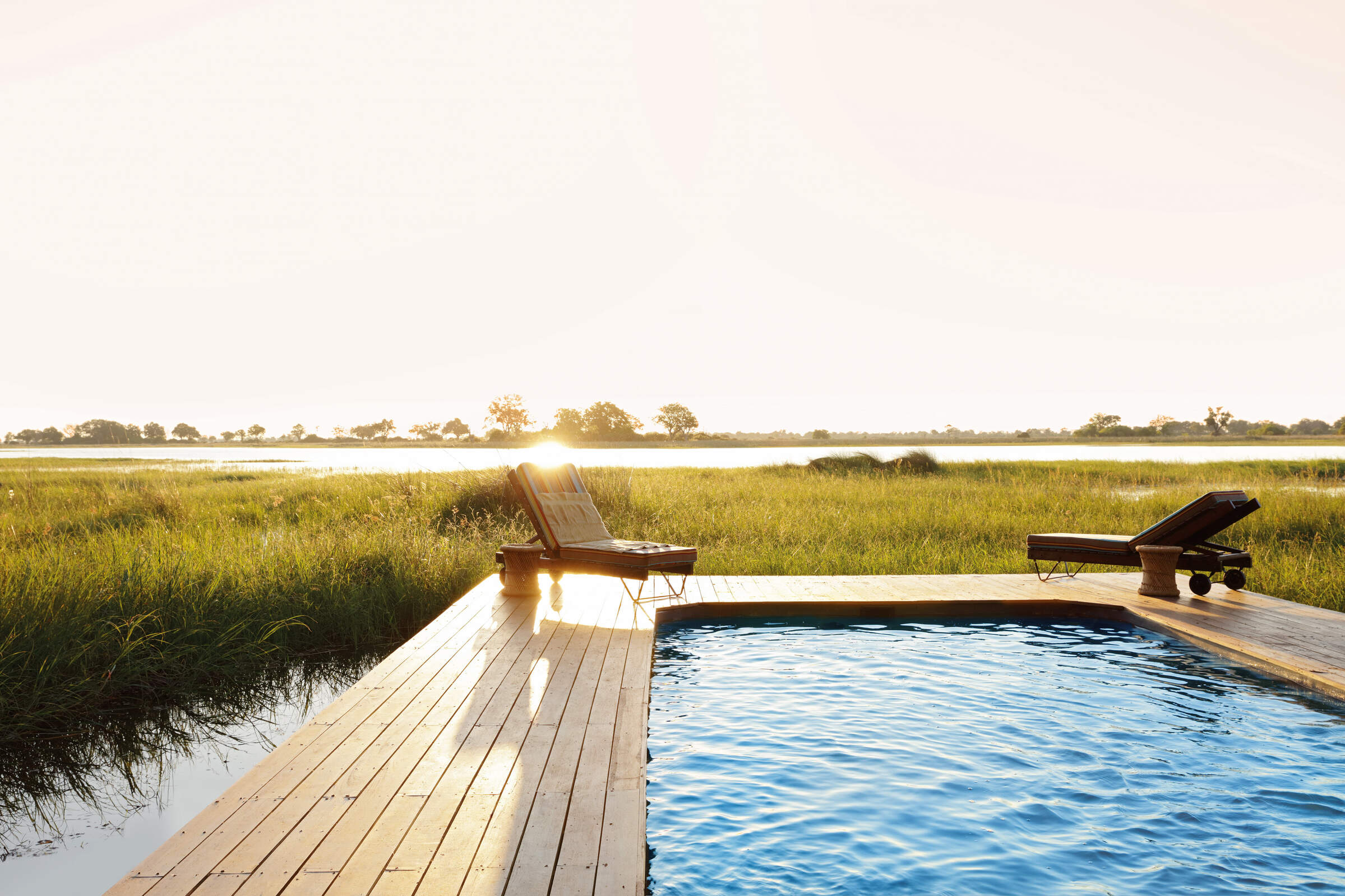
Mapula Lodge
For an affordable yet varied safari encompassing a range of eco-systems, the traditional Mapula Lodge takes a lot of beating.
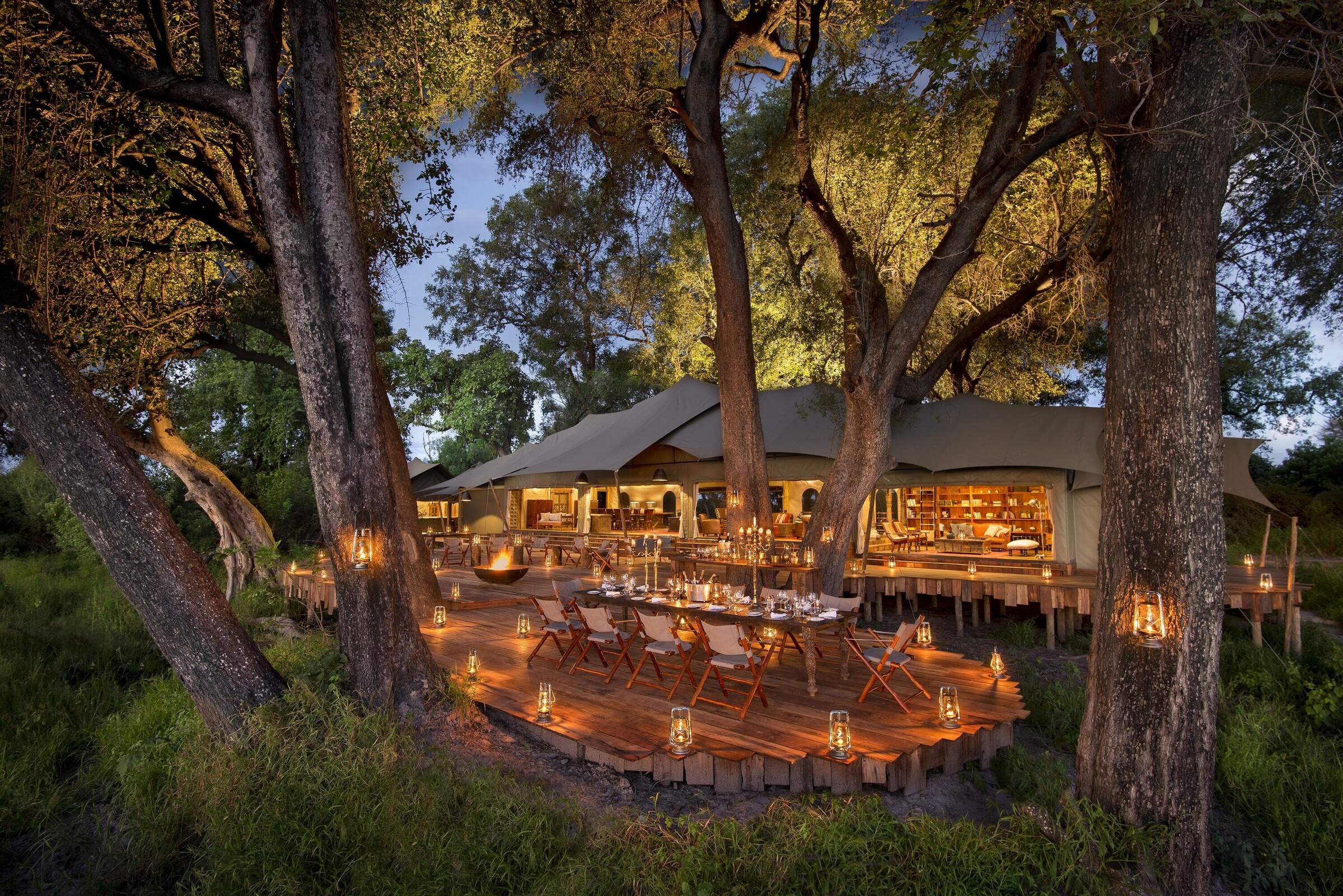
Duba Plains Camp
Duba Plains Camp is a traditional yet luxurious safari camp, best known for the thrilling lion behavior interaction that is often see during the day.
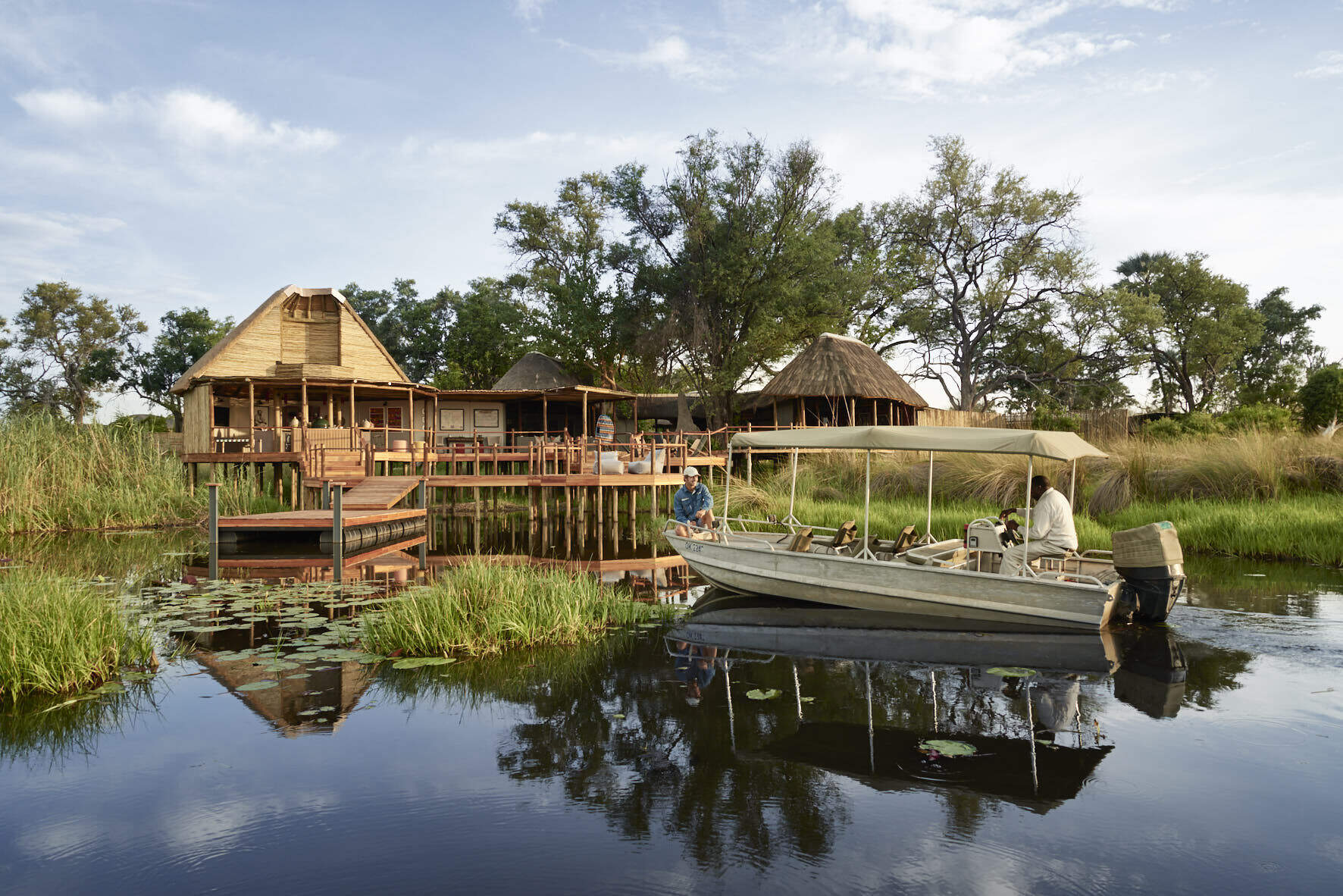
Baines' Camp
Baines' Camp is a well-run, intimate camp in a pretty part of the Okavango, offering a range of activities and the option to spend a morning walking with elephants.
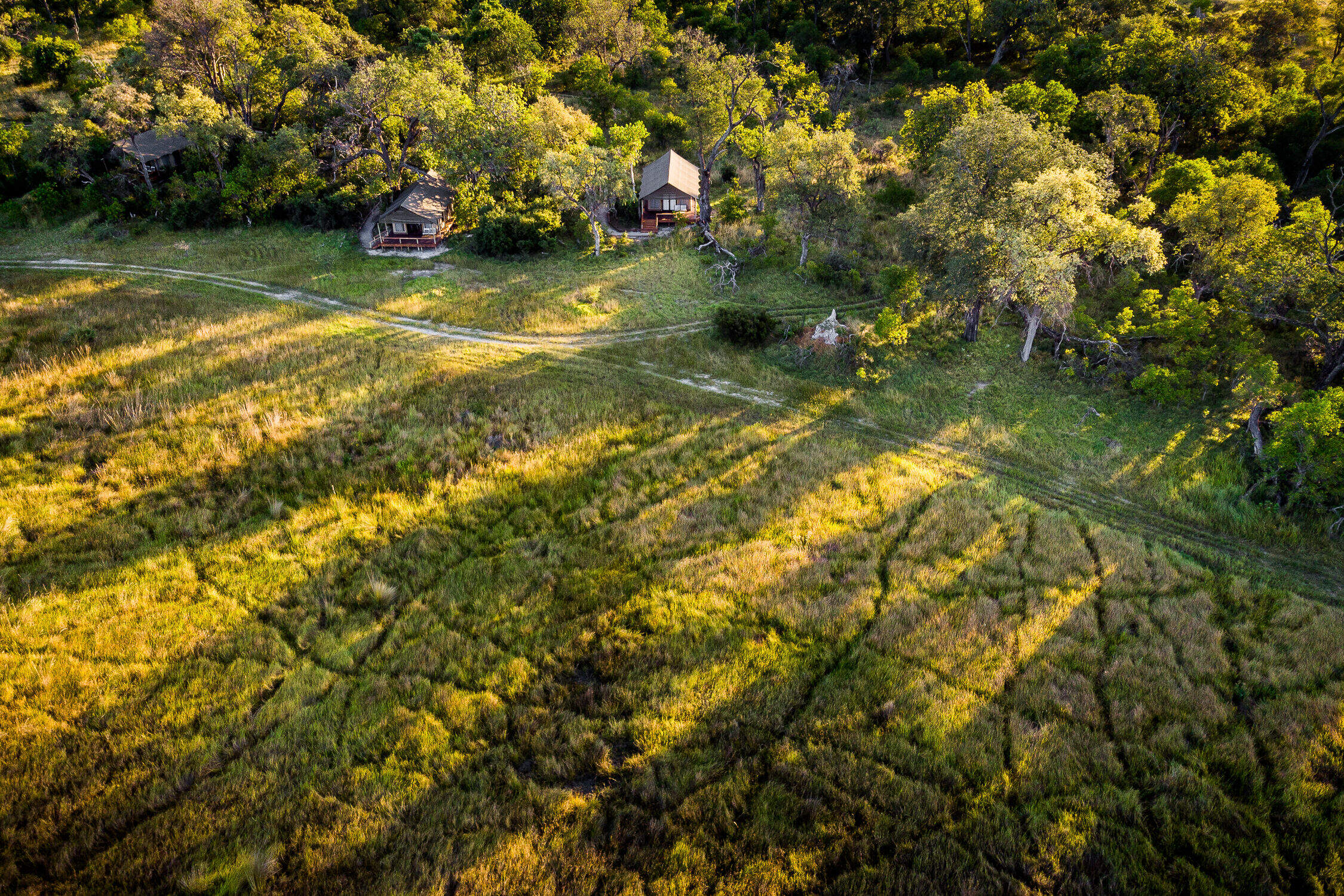
Stanley's Camp
In a private concession south of Moremi Game Reserve, Stanley's Camp offers 4WD game drives, seasonal water activities and a superb elephant interaction.
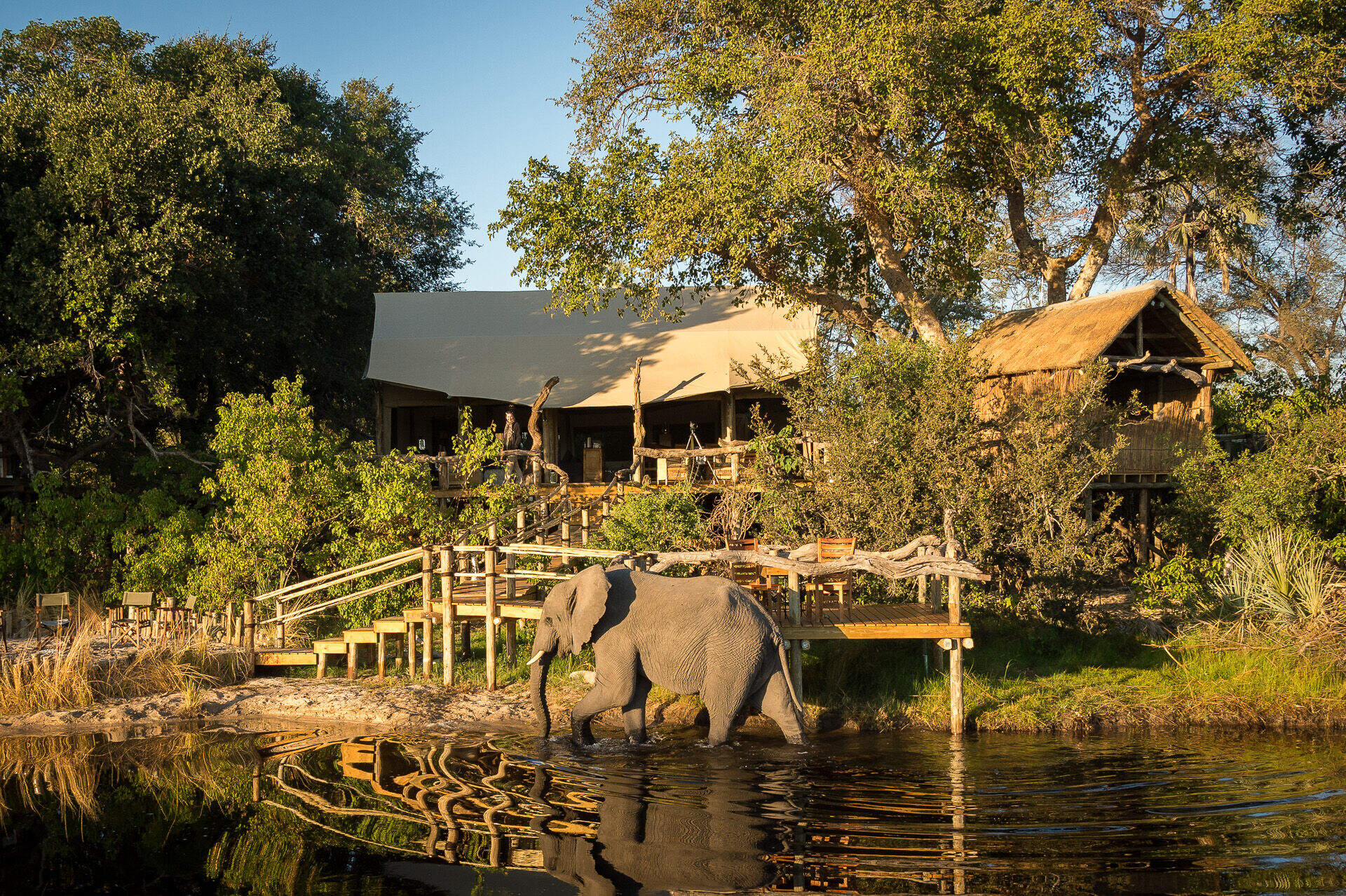
Little Tubu
Little Tubu is a new, traditional camp with just three tented chalets and a distinctive tree-house feel. The areas around it can be explored by water and land-based activities year round.
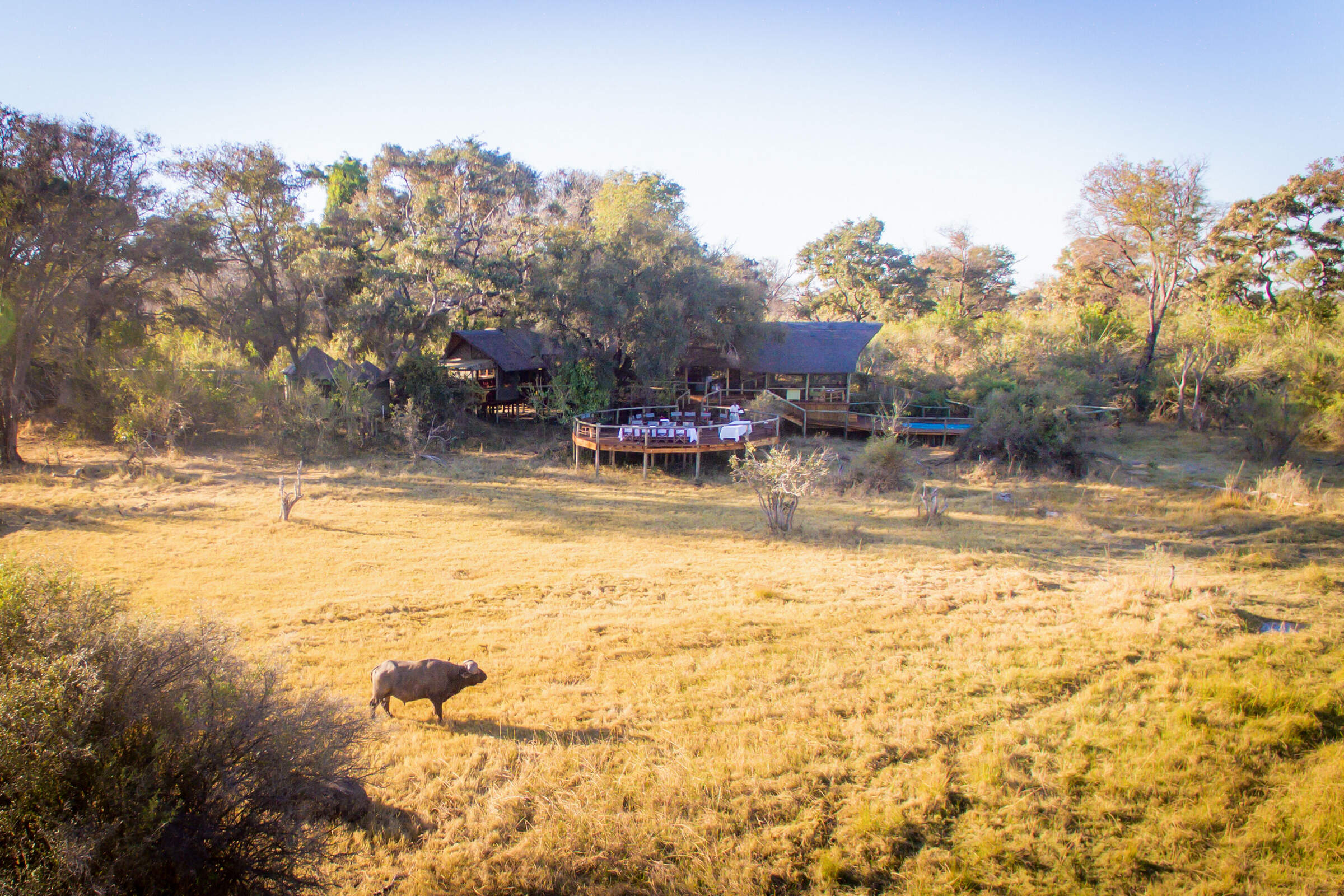
Rra Dinare
Located in a private concession in the southern reaches of the Okavango Delta, overlooking the Gomoti River, Rra Dinare is a traditional-style, well-priced camp.
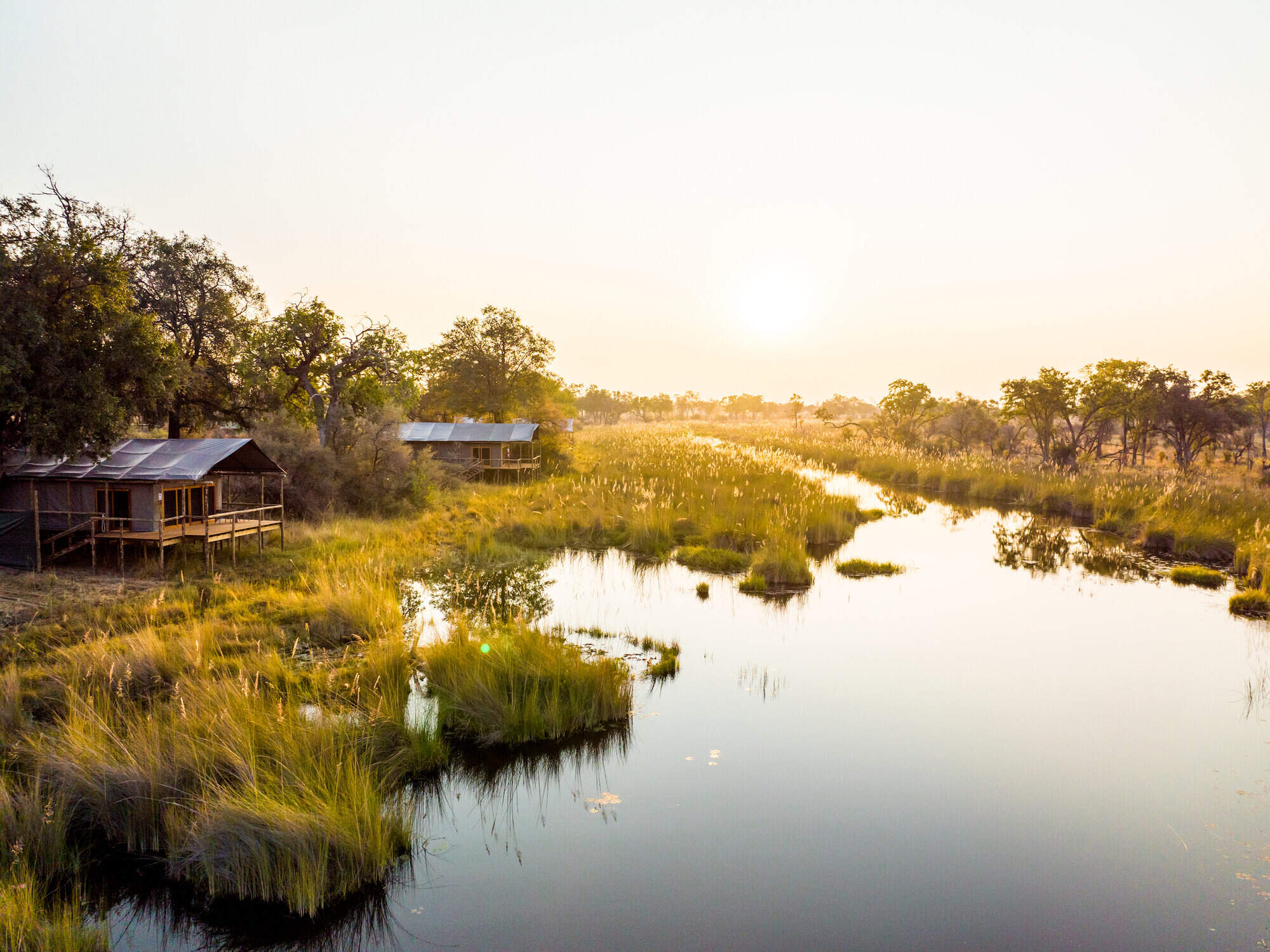
4 Rivers
4 Rivers is a new camp in a previously in accessible area of the excellent Kwara concession.
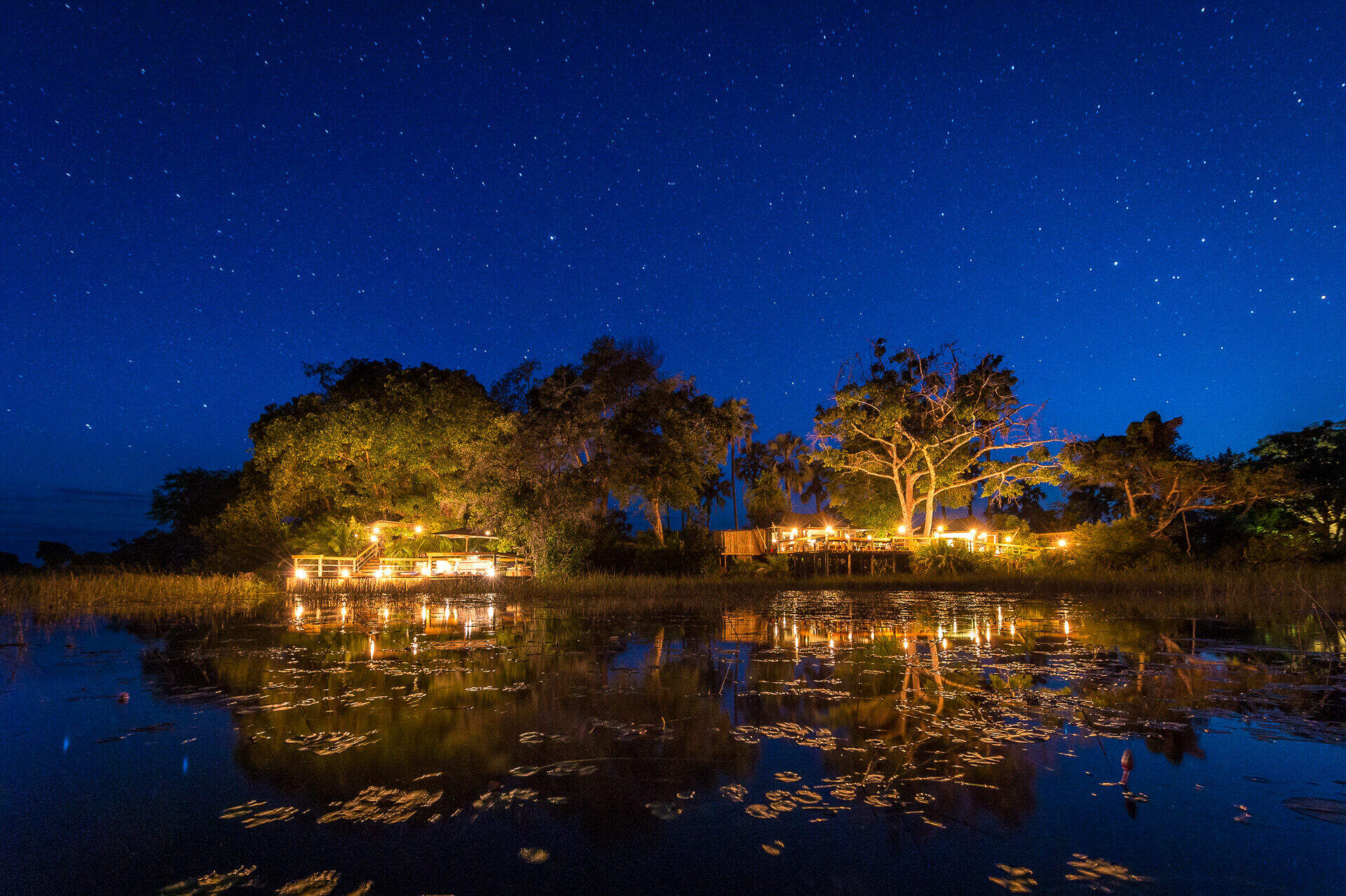
Pelo Camp
In a pristine wilderness environment deep in the Okavango Delta, the seasonal Pelo Camp is tented yet comfortable, with activities focusing on excursions by mokoro.
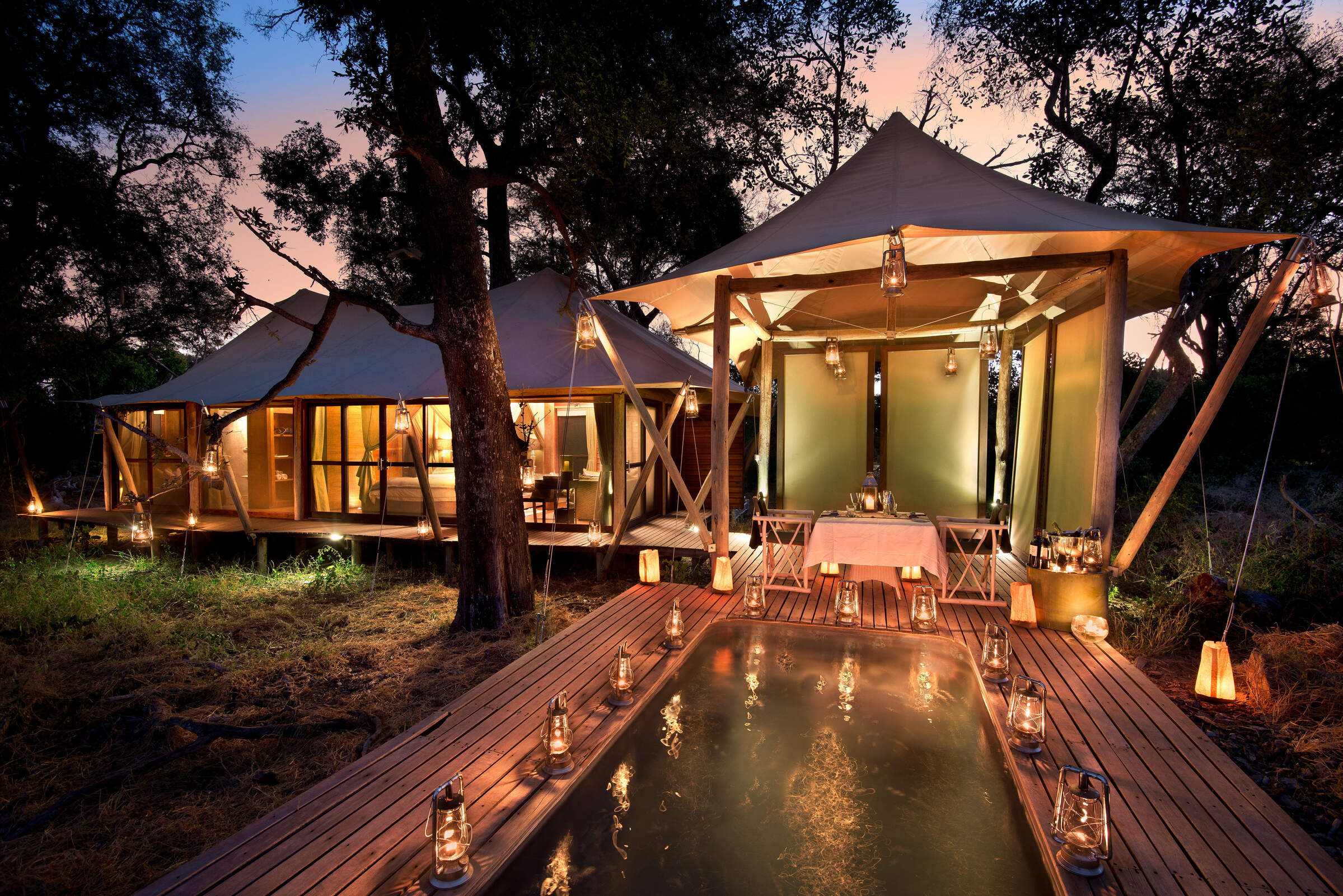
Xaranna
Xaranna is a plush tented camp amongst the idyllic waterways and islands of the Delta. Each air-conditioned tent has a plunge pool. Water activities and pampering are the focus here.
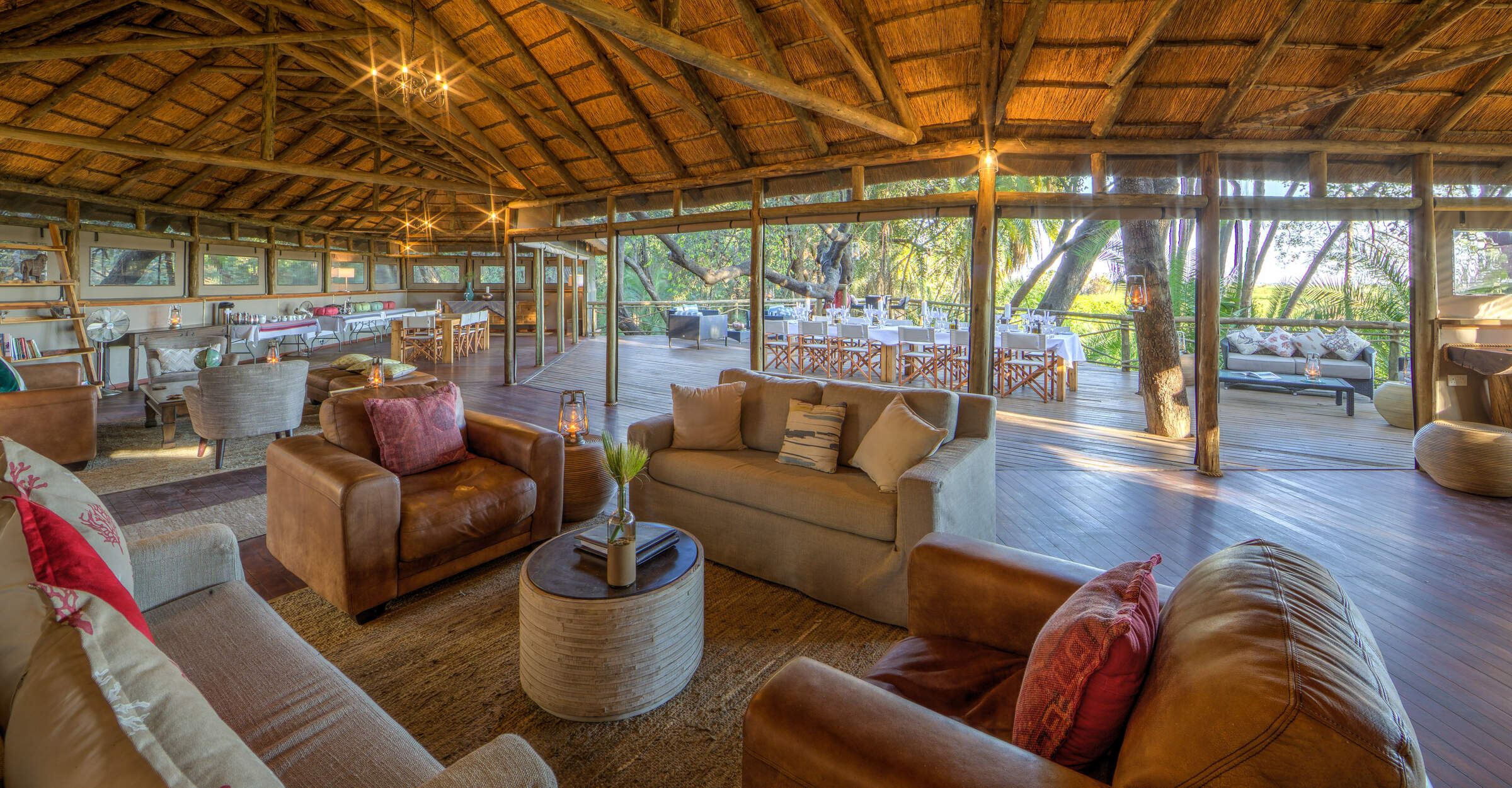
Setari Camp
Setari Camp stands on an island dotted with palm trees, close to the base of the Okavango's 'Panhandle", offering primarily water-based activities.
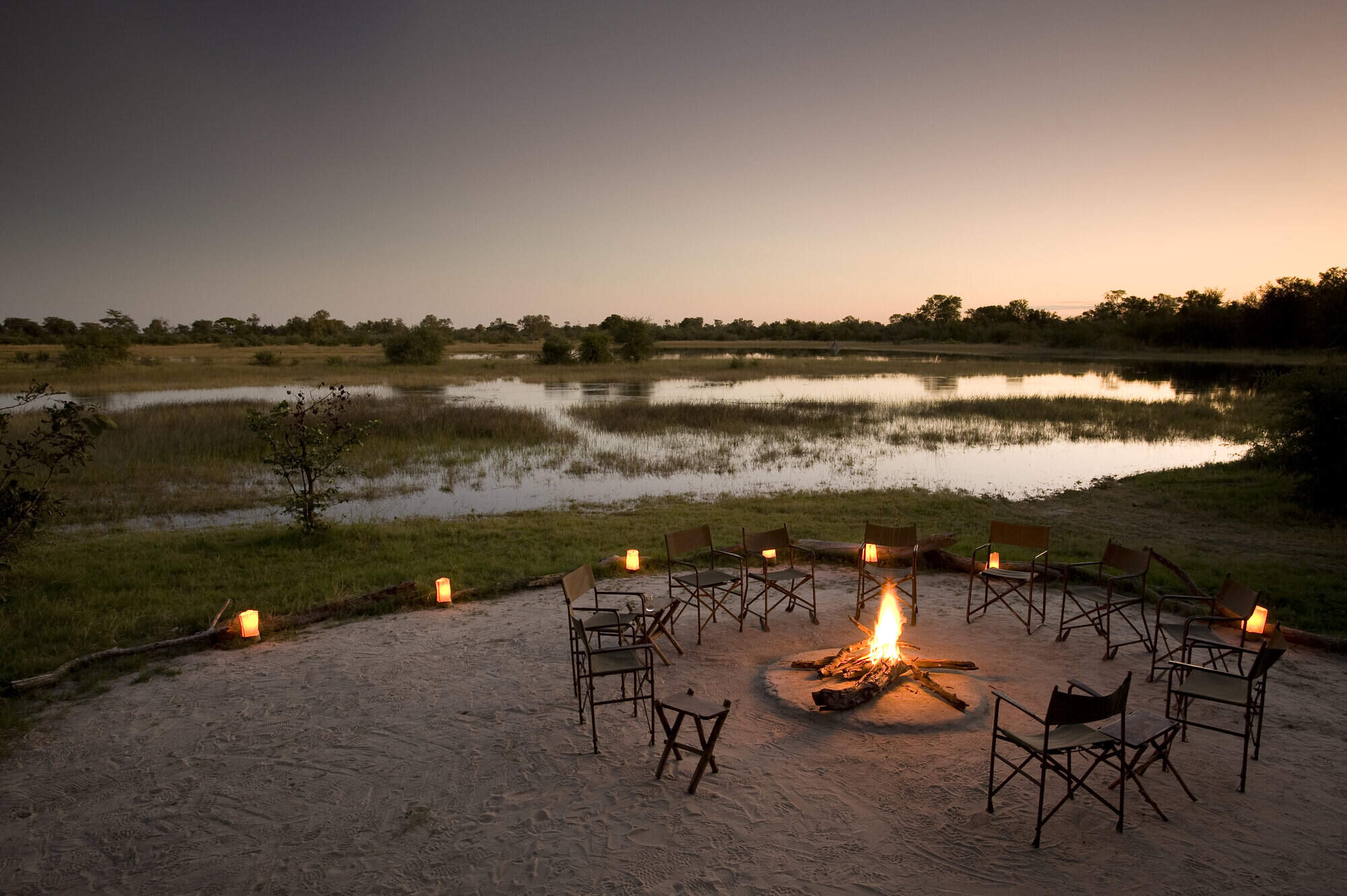
Okavango Explorers
The traditional, tented Okavango Explorers Camp offers a mix of walking, canoeing and game drives led by great guides in a wildlife-rich area.
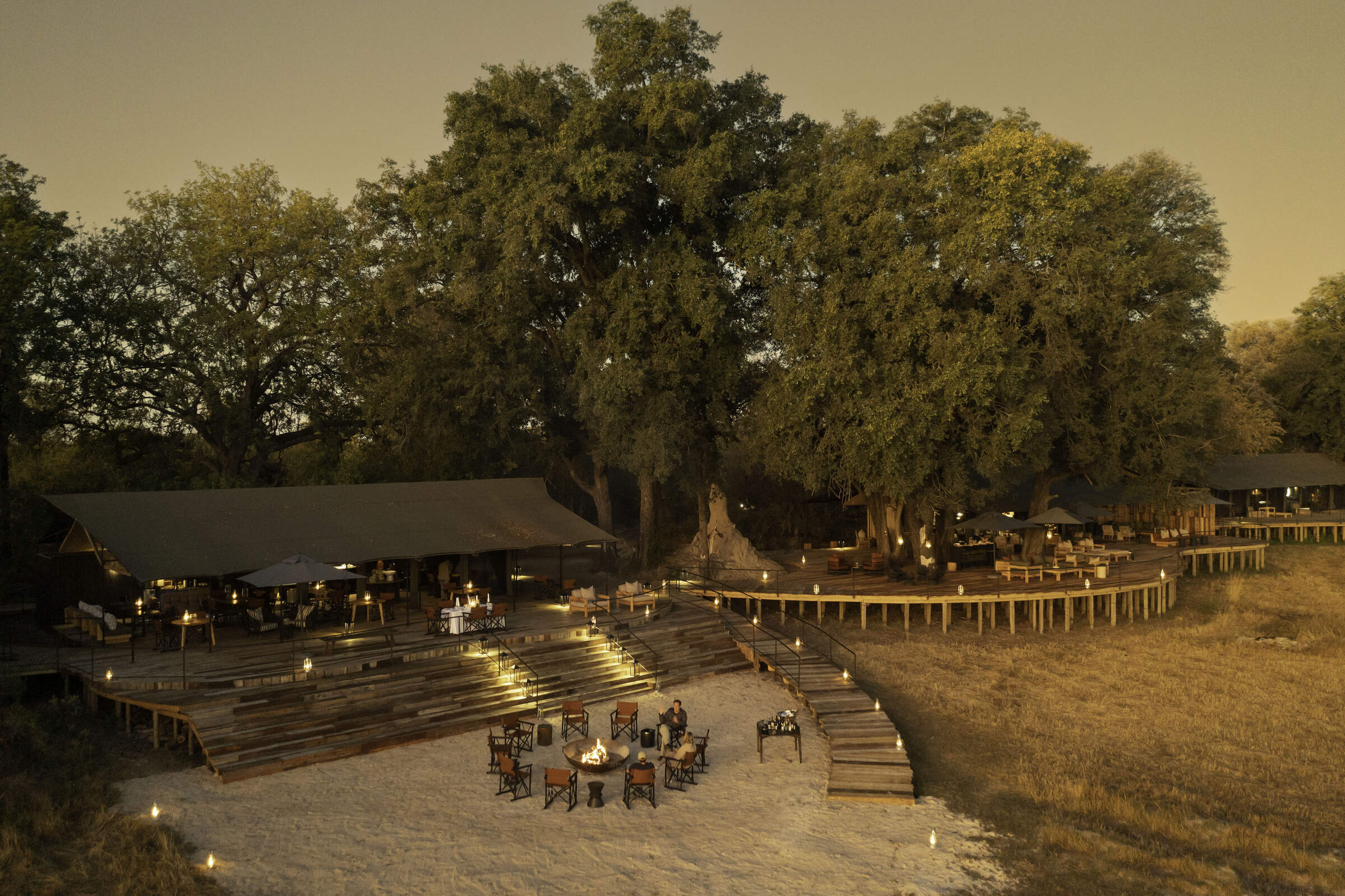
Kiri Camp
Kiri Camp is the latest Okavango offering from the excellent team behind Machaba. In an exciting new location in the heart of the Delta we cannot wait to visit this new camp.
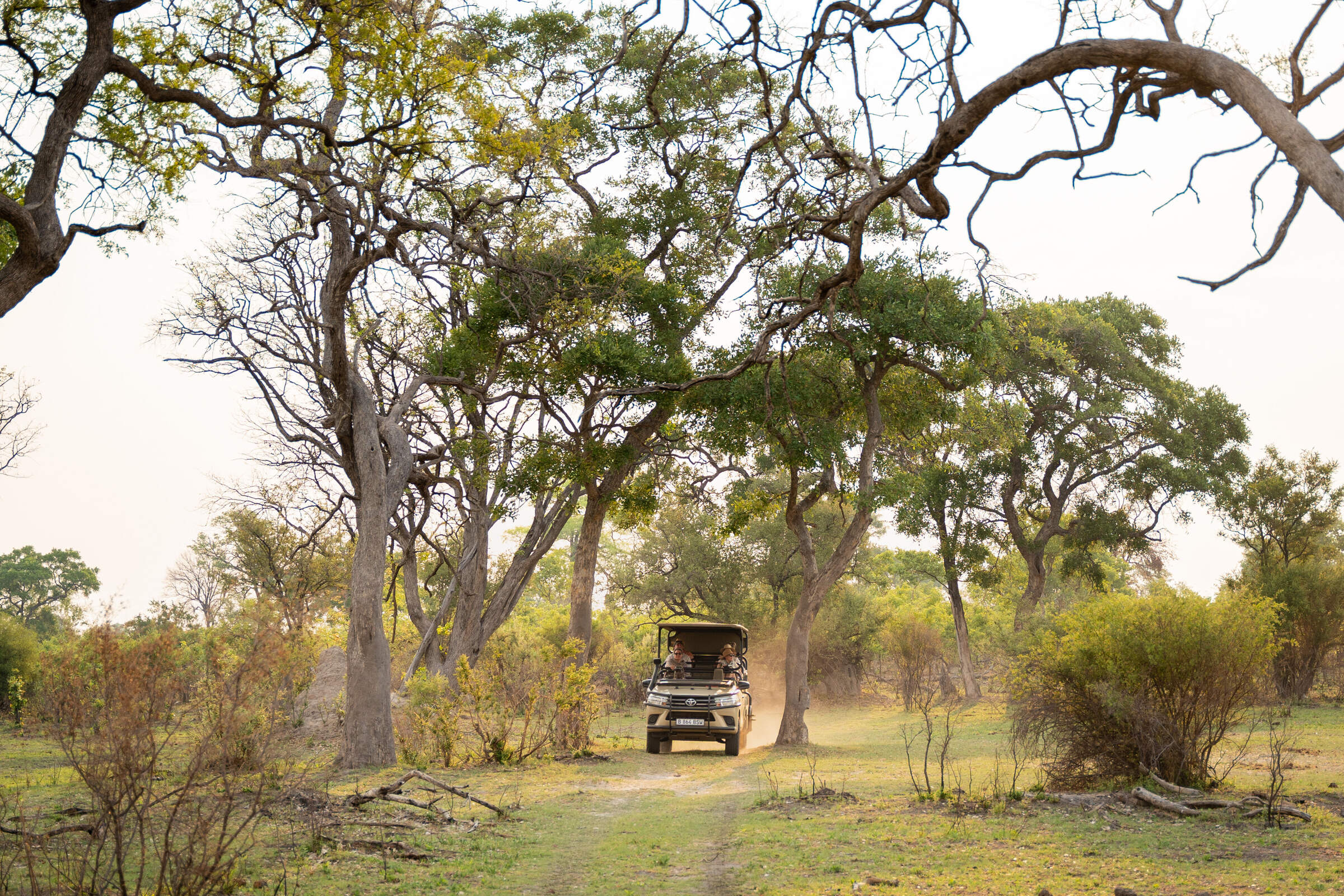
Karangoma
New for 2024, Karangoma is a classic, tented camp offering walking, canoeing and game drives, in partnership with the local Bukakwe San clan.
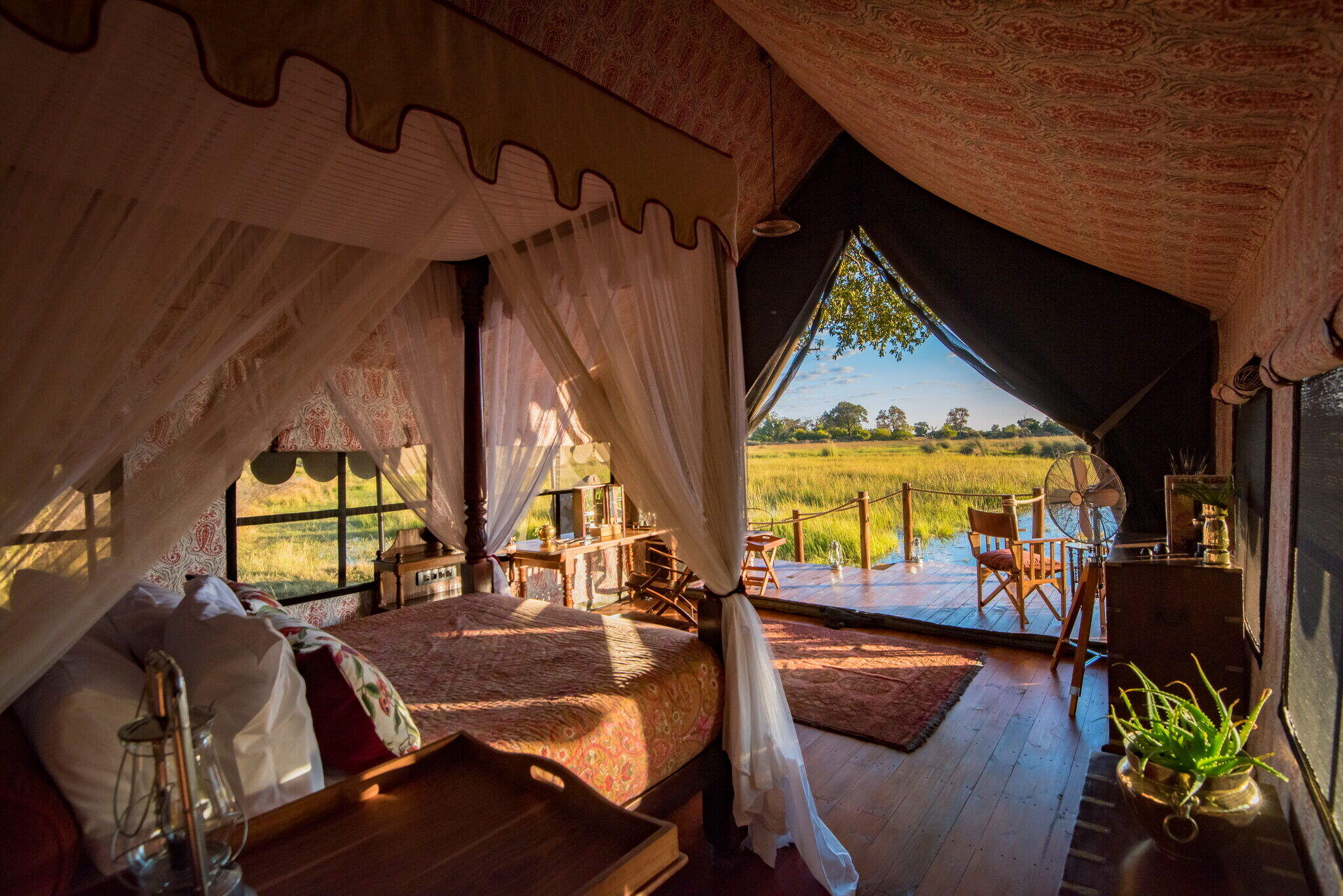
Duke’s Camp
On a remote island within a large concession, the romantic Duke's Camp and smaller Duke’s East are nestled among mature trees overlooking wildlife-rich plains and waterways of the Okavango.
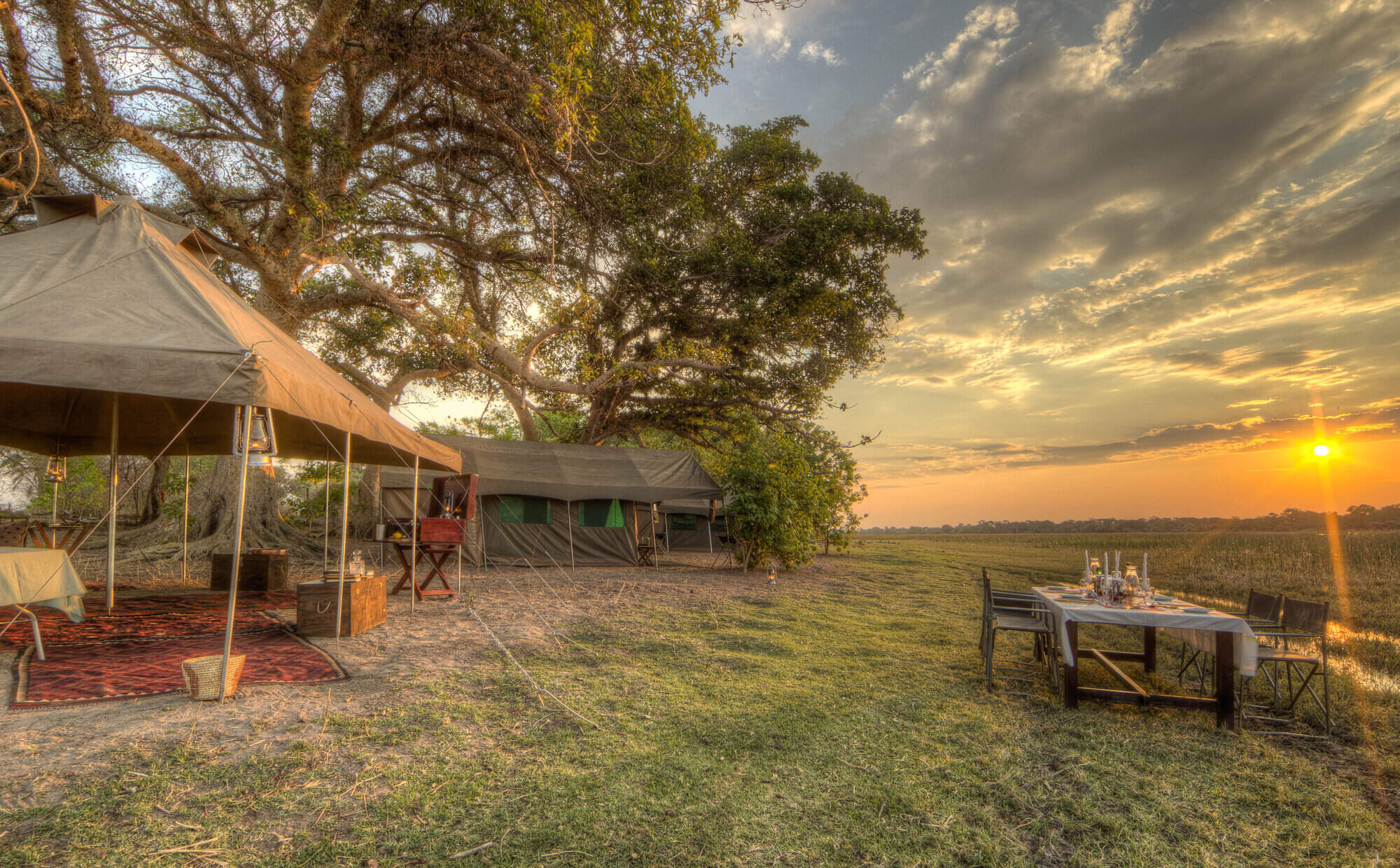
Okavango Walking Safari
The Okavango Delta Walking Safari camps in a secluded Okavango Delta Reserve where there are few roads; the ideal location for a walking trail led by an expert guide.
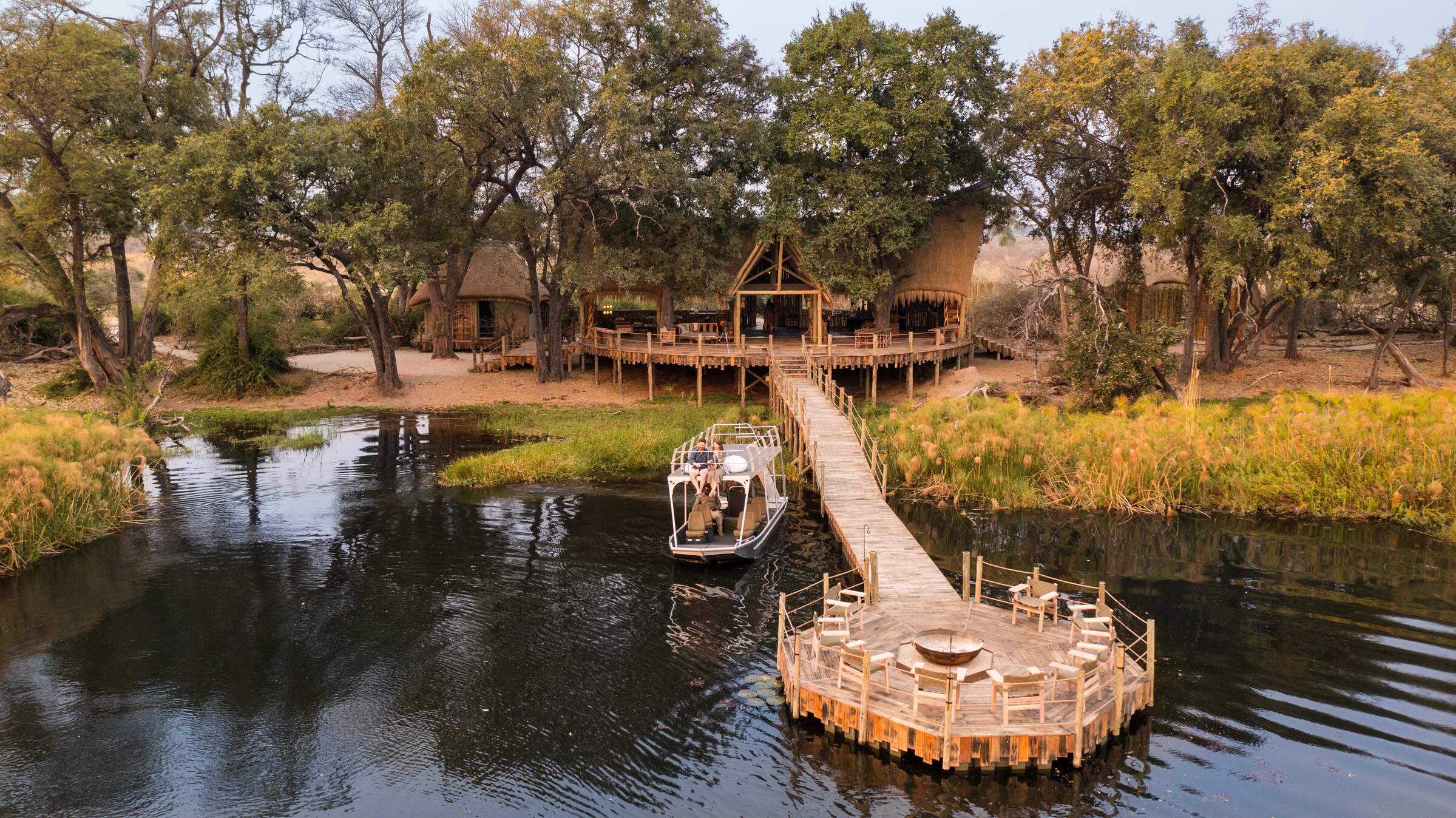
Sitatunga Island Camp
Tucked away in a pristine corner of the Okavango Delta, the exclusive Sitatunga Private Island is a water-based camp offering boating, mokoro trips and fishing.
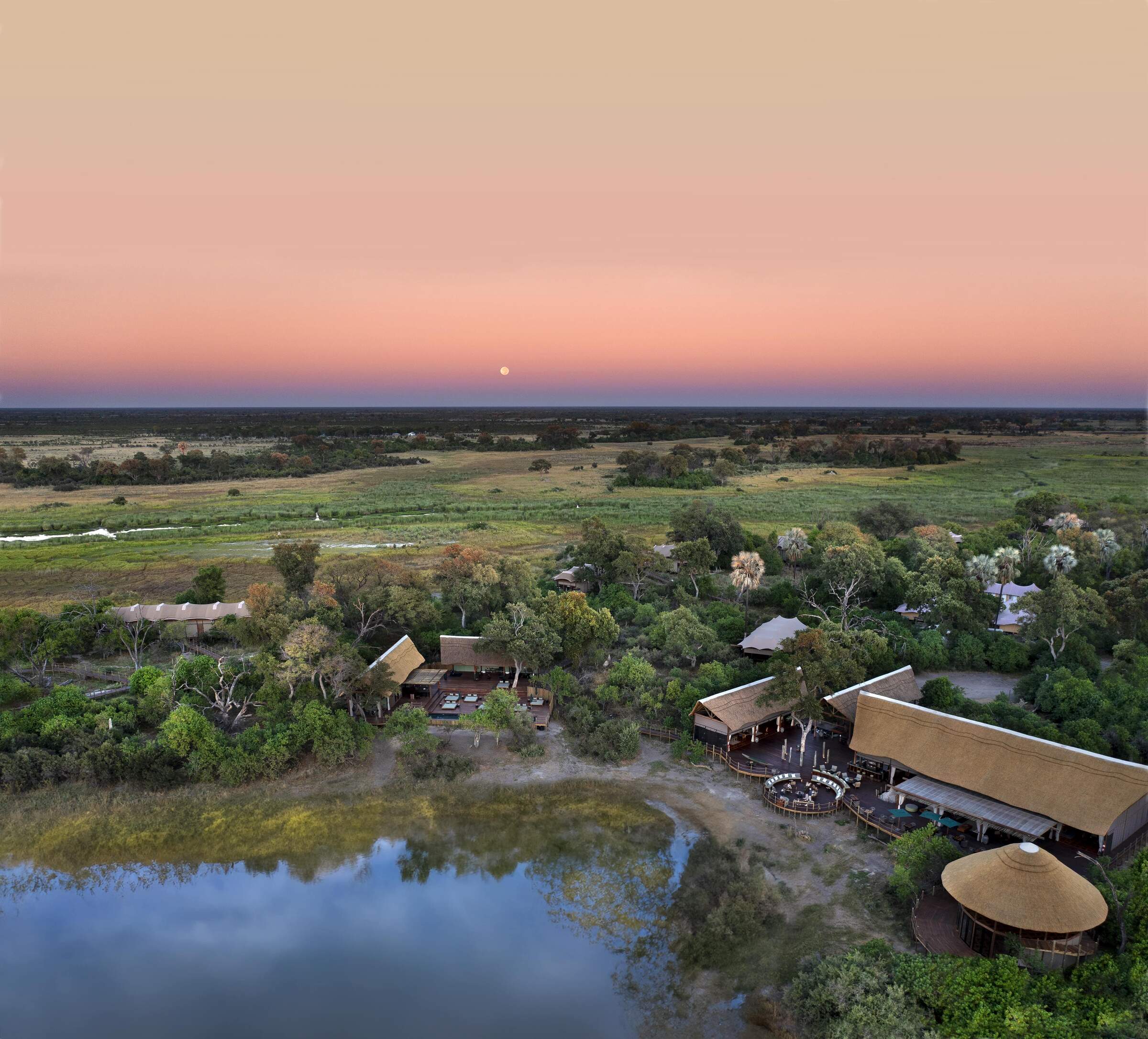
Atzaro Okavango
With a high level of tasteful luxury promised at Atzaro, we think it will be best suited to travellers seeking a touch of pampering alongside their safari.
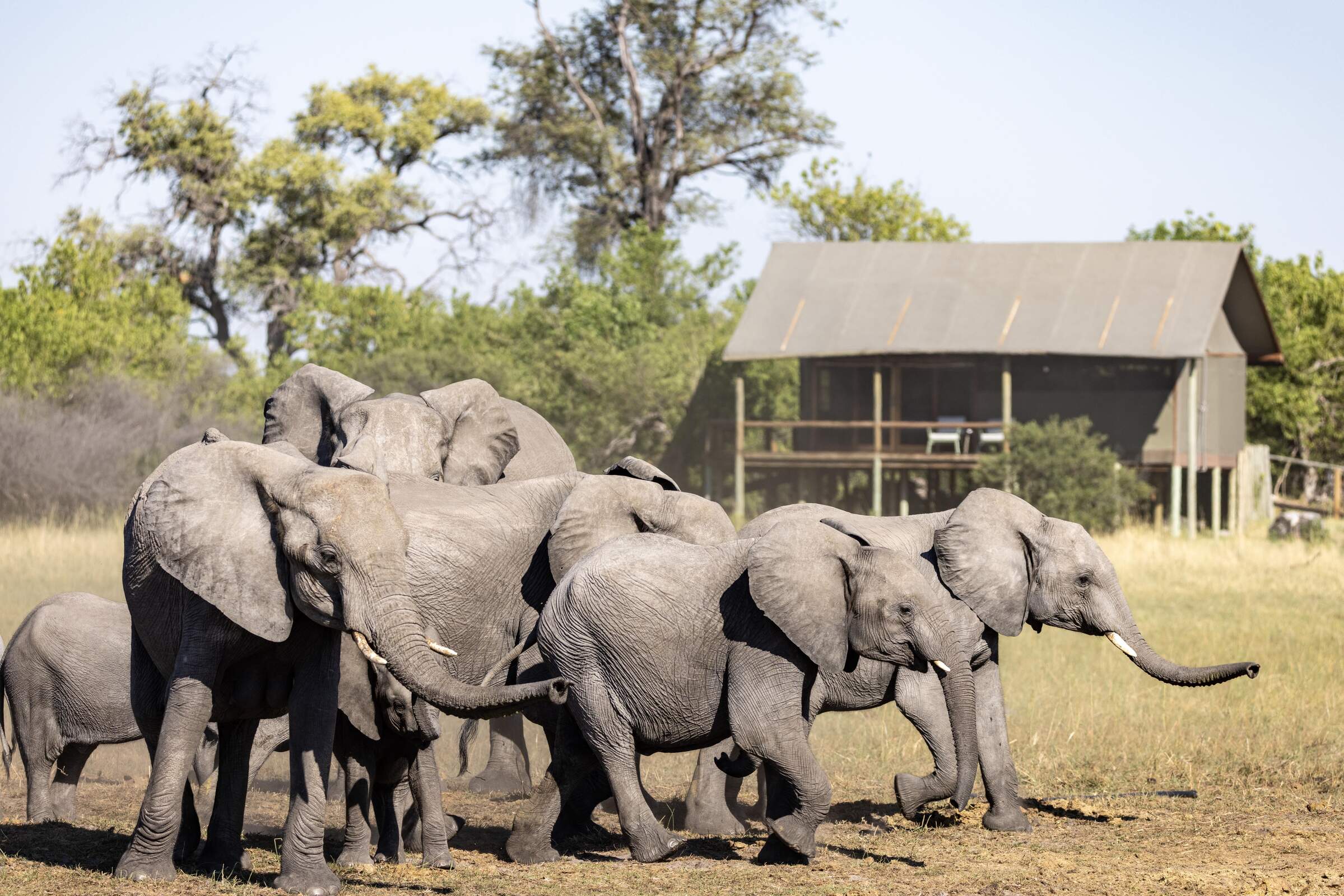
Mokolwane
Deep in the heart of the Okavango, the simple Mokolwane focuses on wildlife viewing in a large, untouched area.
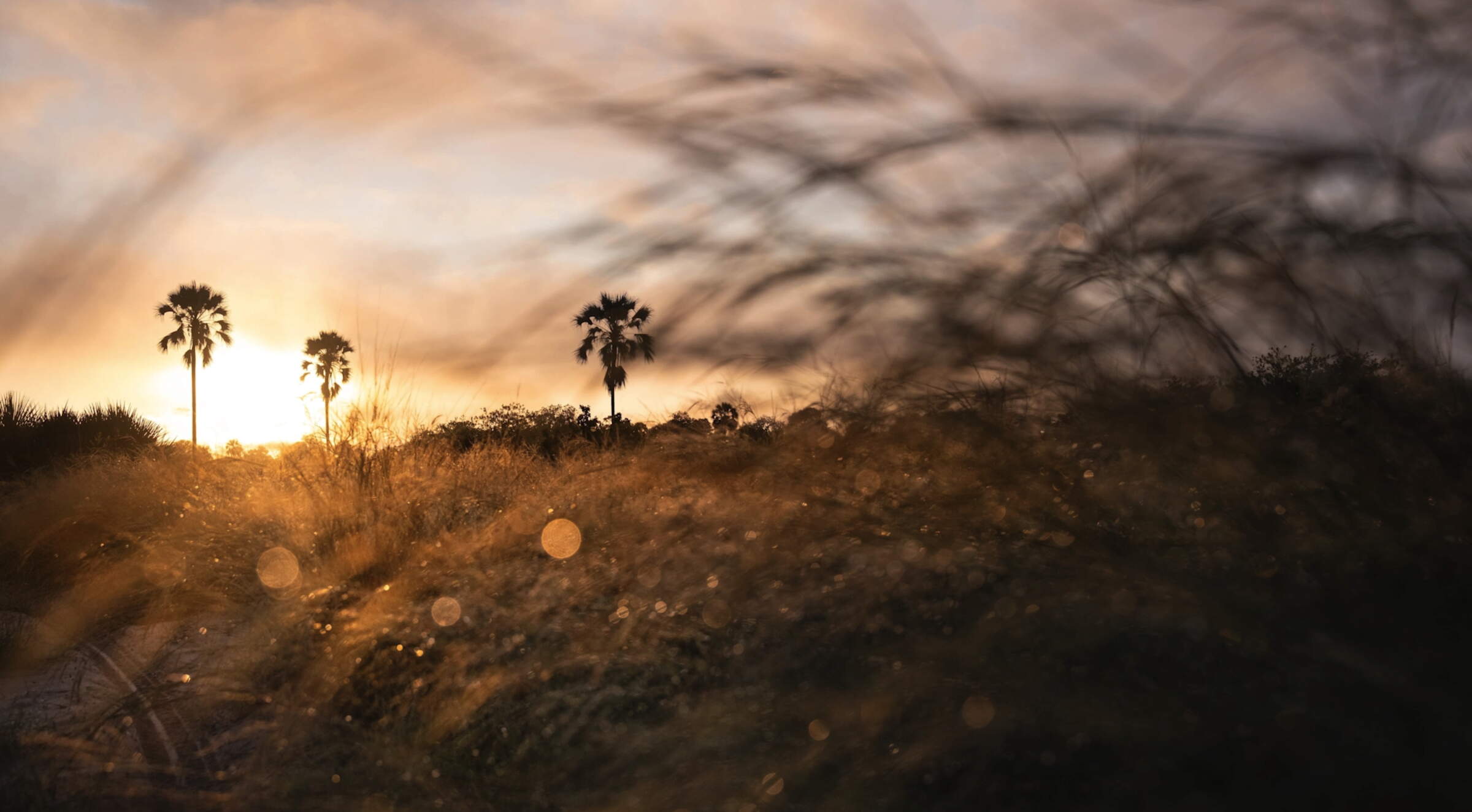
Singita Elela
Singita Elela is an exclusive safari camp on the western side of the Botswana's Okavango Delta - offering superb wildlife and water based opportunities depending on the seasonality.
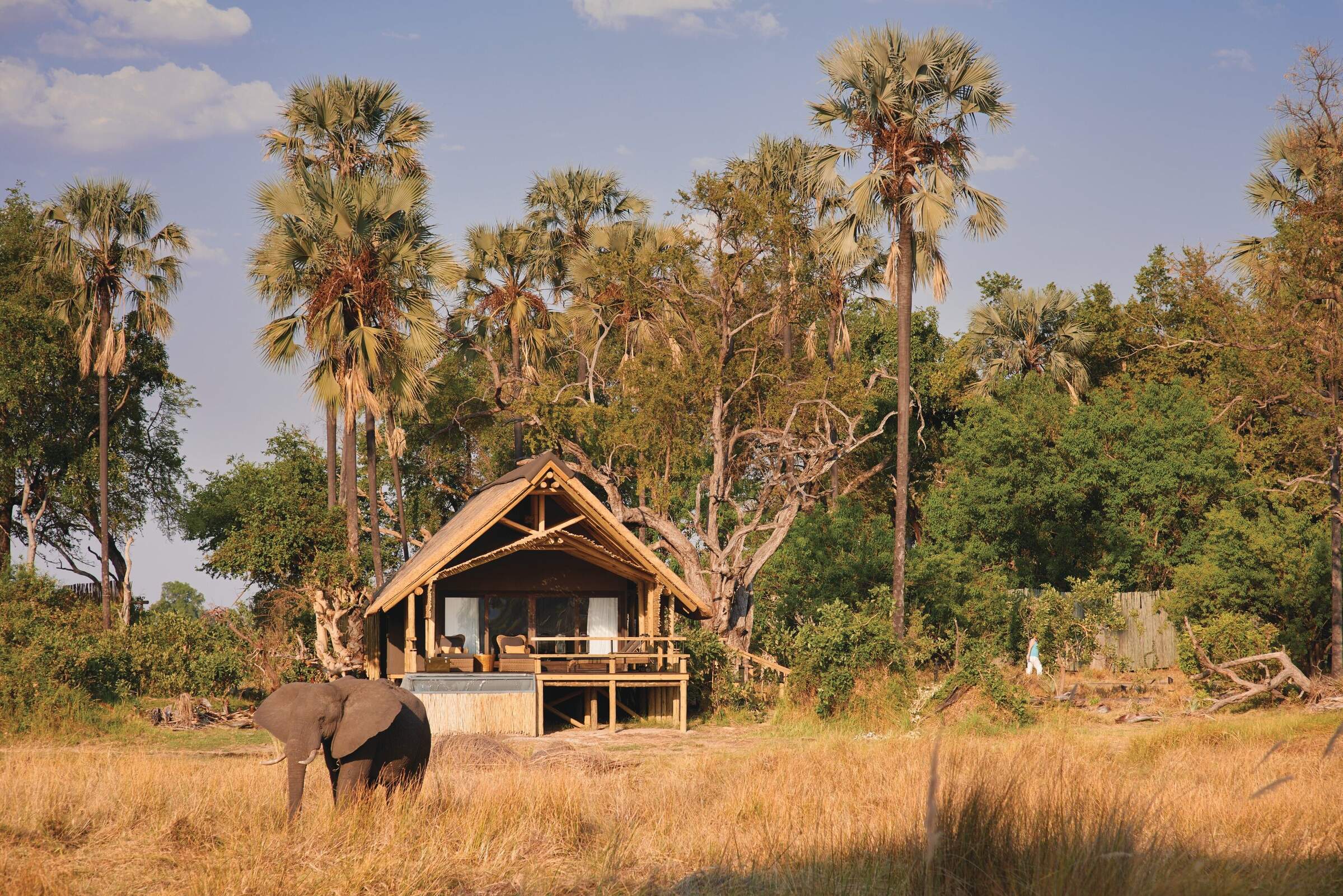
Eagle Island Lodge
Eagle Island Lodge is a luxurious camp with international-style facilities including air conditioning and intercom in each room; offering water based activities in the Okavango Delta.
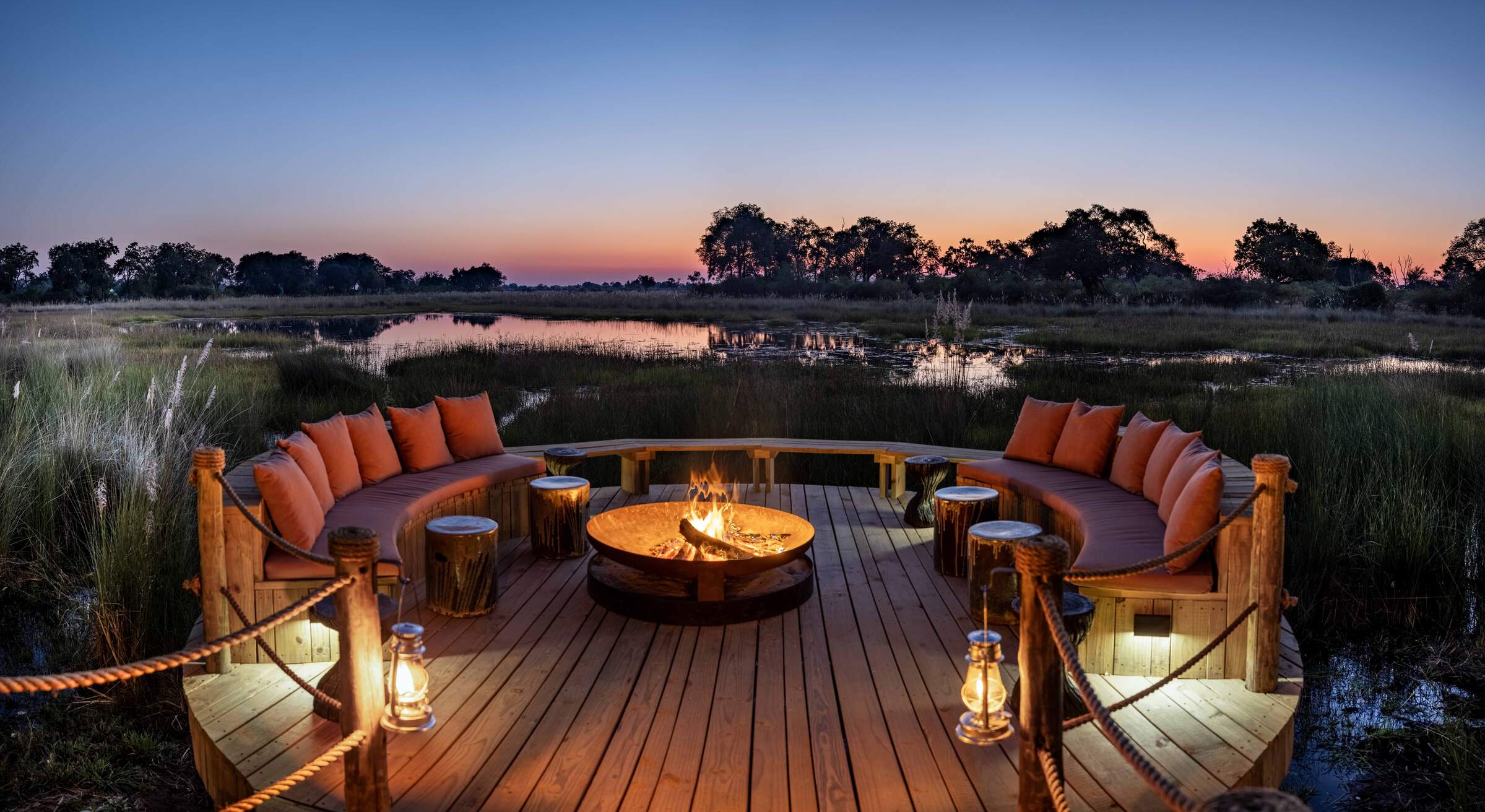
North Island Okavango
Deep in quintessentially “Okavango” territory, between deep-water and dry-land habitats, North Island focuses on a luxury safari experience with very good wildlife viewing opportunities.
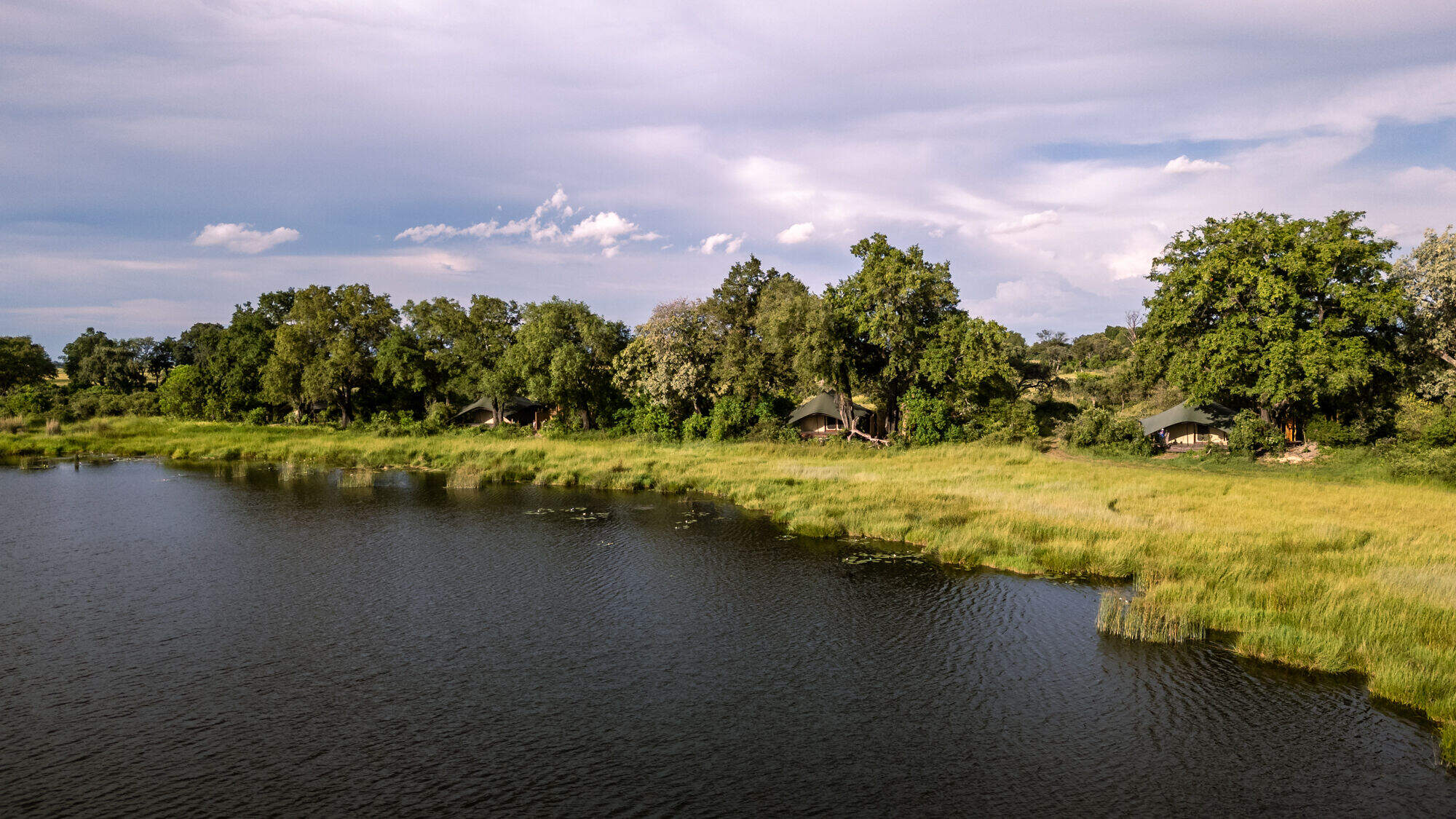
Maxa
Overlooking the permanent Maxa Lagoon, Maxa has a range of activities on offer, combining understated luxury with comfort in a remote location.
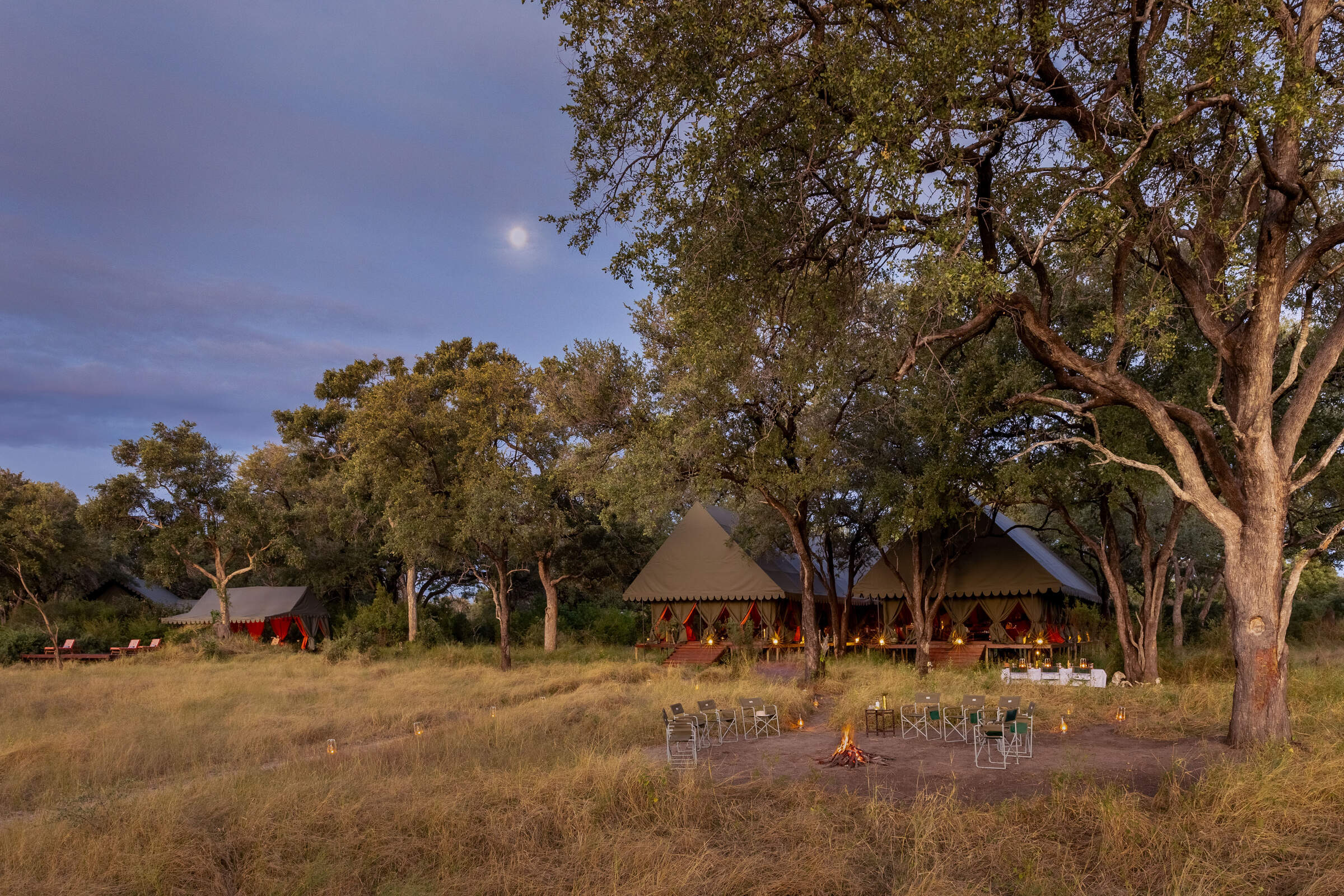
Mbamba
Deep within the northern Okavango, the classically styled Mbamba is located in the same wildlife-rich private concession as its sister camp Dukes.
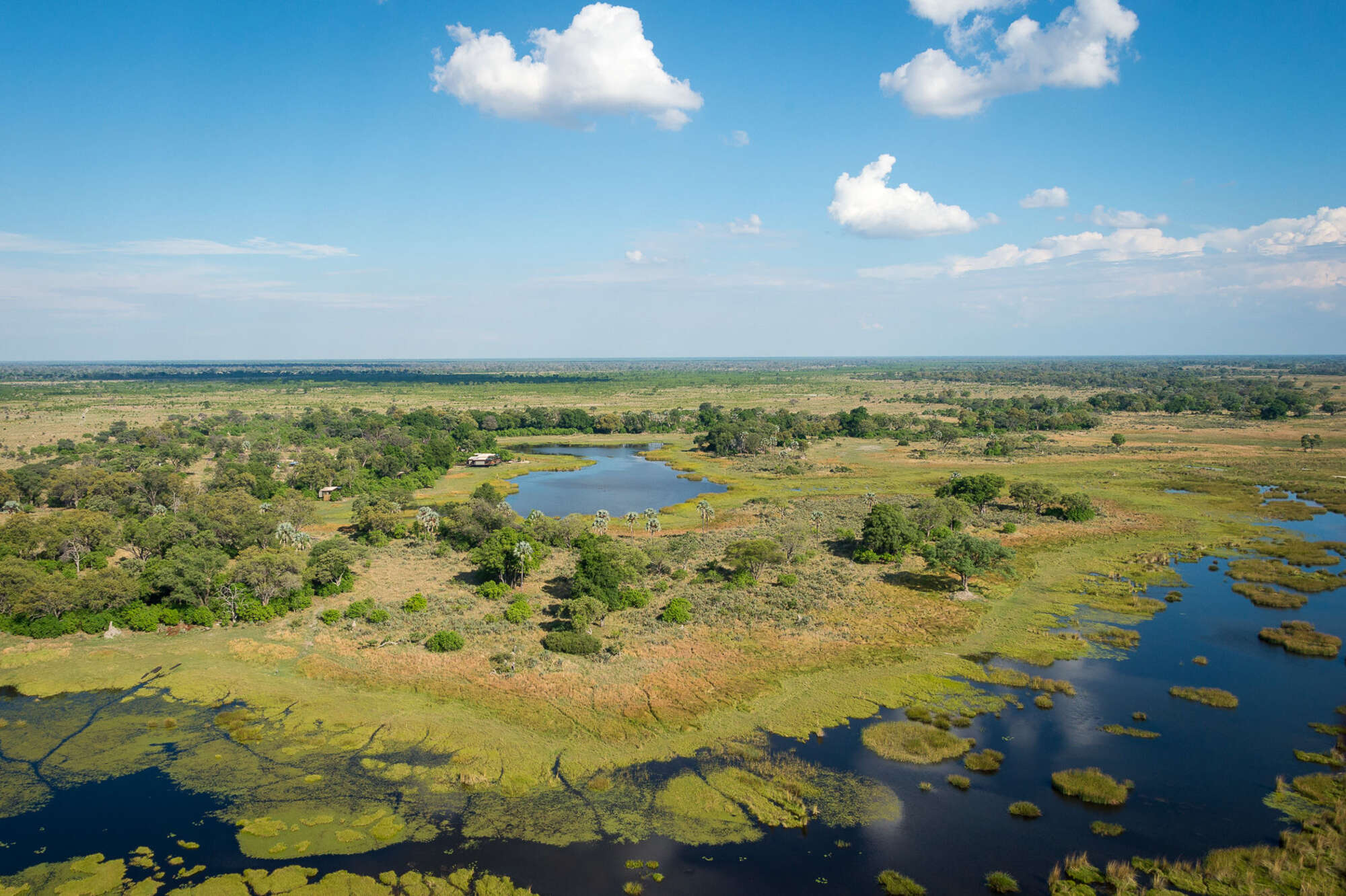
Qorokwe Camp
Luxurious and contemporary, the relatively new Qorokwe Camp is a gem in the Okavango Delta, offering land- and occasionally water-based activities in a prime wildlife area.
When to go to Okavango Delta Safari Reserves
Our month by month guide: What it's like to visit Jao Camp in Okavango Delta Safari Reserves
Jan
Feb
Mar
Apr
May
Jun
Jul
Aug
Sep
Oct
Nov
Dec
Okavango Delta Safari Reserves in January
January marks the peak of the rainy season in the Okavango Delta. Evening rains are often short but heavy, accompanied by occasional dramatic thunderstorms. Temperatures remain high, although cooler than the preceding months of October to December. Wildlife can be harder to spot as animals spread out across the lush floodplains.
This month is a birdwatcher’s paradise, with migratory species in abundance over flooded areas. Rising water levels in parts of the Delta make mokoro safaris possible, offering serene and immersive experiences. The vibrant greenery and dramatic skies provide stunning opportunities for photography. With relatively low rates and fewer visitors, January is ideal for those seeking a quieter, budget-conscious Botswana safari.
- Warm temperatures with frequent evening showers
- Birdlife at its most spectacular in the Delta
- Wildlife dispersed, but insects and smaller creatures abound
- Excellent availability in Delta lodges and camps
Our view
A good time to visit, with pros & cons
Weather in January
Okavango Delta Safari Reserves in February
February mirrors January’s weather patterns, with heavy rains and slightly cooler temperatures. The Delta’s landscape is at its greenest and teeming with life. Smaller animals, insects, and vibrant birdlife dominate, as many species raise their young. The rains create temporary pools and waterholes, further dispersing larger game, while thick vegetation and tall grass adds to the challenge of spotting big wildlife.
However, Moremi Game Reserve and select areas of the Delta still offer excellent game viewing opportunities. Rising water levels enhance water activities, with boat safaris providing unique access to the Delta’s watery beauty. February is particularly rewarding for photographers seeking lush landscapes and dramatic skies and birdwatchers, with many migratory species present.
- Warm with occasional thunderstorms
- Many animals with young in the Delta
- Big game dispersed throughout wetlands
- Big game dispersed, but viewing improves in drier areas
- Lower visitor numbers and great lodge availability
Our view
This is not a great time to visit
Weather in February
Okavango Delta Safari Reserves in March
March marks the gradual end of the main rainy season in the Okavango Delta. Sunny days become more frequent, with occasional afternoon thunderstorms. The Delta remains lush and vibrant, with wildlife activity increasing as animals finish raising their young and begin congregating around permanent water sources.
Rising water levels make boat safaris a highlight, offering intimate access to the Delta’s waterways. Birdwatching is excellent, with both resident and migratory species thriving. With fewer visitors, March offers a quieter, more personal safari experience.
- Rains taper off but temperatures remain warm
- Occasional small thunderstorms in Delta
- Wildlife begins congregating around water sources
- Ideal conditions for boat safaris
- Few tourists and attractive rates at camps
Our view
A good time to visit, with pros & cons
Weather in March
Okavango Delta Safari Reserves in April
April brings clearer skies to the Okavango Delta, with the landscape remaining green and lush. Night temperatures begin to drop, especially in the southern Delta. The annual floods from Angola start to flow through the northern Delta, filling channels and lagoons, creating ideal conditions for water-based activities like boat safaris.
Wildlife viewing improves as vegetation thins and predator activity increases with cooler evenings. Moremi Game Reserve and the private concessions offer rewarding game drives, and walking safaris on the larger islands, such as Chief’s Island, become popular during this time. Birdwatching remains excellent, with many migratory species still present. April’s combination of pleasant weather, wildlife activity, and relatively low rates makes it a rewarding time to visit.
- Cooler evenings and occasional light showers
- Floodwaters begin to fill Delta channels
- Predator-prey interactions increase
- Ideal for walking safaris and boat trips
- Popular shoulder season, rates fairly low
Our view
A good time to visit, with pros & cons
Weather in April
Okavango Delta Safari Reserves in May
May is a popular time to visit the Okavango Delta, marking the last month of the shoulder season. The annual floods continue to spread through the Delta, transforming the landscape. Cooler mornings and evenings encourage predator activity, while thinning vegetation makes wildlife spotting easier, though some tall grasses may still obstruct views.
May offers excellent photographic opportunities with clear, crisp air. It's a favourite time for many visitors, combining good wildlife sightings with pleasant weather. Camp bookings throughout the Delta fill up quickly during this period.
This is a perfect month for scenic flights, offering breathtaking views of the advancing floodwaters. Mokoro trips through the Delta’s tranquil waterways provide a unique perspective on the environment. Camps start to fill quickly as the Delta’s combination of pleasant weather and excellent wildlife sightings makes it a favourite among safari-goers.
- Cool mornings and evenings with little rain
- Improved game viewing as Delta grasses thin
- Predator activity increasing in drier areas
- Scenic flights and water activities highly recommended
- Last month of shoulder season for camps
Our view
A very good time to visit
Weather in May
Okavango Delta Safari Reserves in June
June signals the start of the dry season in the Okavango Delta. Days are warm, with clear skies, while mornings and evenings can be cold, occasionally reaching freezing temperatures. The annual floods reach their peak, creating spectacular conditions for water-based activities like boat safaris along the Khwai River and in private concessions.
Wildlife concentrates around permanent water sources as surface water dries up, improving game viewing. The thinning vegetation and crisp, clear air make June perfect for photography. High demand for camp bookings reflects its popularity, as this month combines great game viewing and pleasant weather.
- Warm days, cold mornings and nights
- Peak floodwaters make boat safaris unforgettable
- Wildlife congregates around permanent water sources
- Excellent conditions for photography
- High demand for camps and lodges
Our view
Fantastic: the very best time to visit
Weather in June
Okavango Delta Safari Reserves in July
July offers cool mornings and evenings with warm, sunny days, making it ideal for wildlife viewing. The floodwaters remain at their peak, providing excellent opportunities for boat safaris. Vegetation continues to thin, enhancing visibility on game drives in Moremi Game Reserve and the Okavango’s private reserves.
Large herds of elephants and buffalo are common sights as they gather near water sources. Predator sightings, including lions and leopards, increase as prey concentrates. Birdwatching is rewarding, and the crisp winter air creates stunning photographic conditions. July is one of the most popular months to visit, with many lodges fully booked well in advance.
- Comfortable days, cold mornings and nights
- Excellent game viewing and predator activity
- Moremi and Khwai areas become busy
- Private concessions offer exclusivity
- High season rates; advance bookings essential
Our view
Fantastic: the very best time to visit
Weather in July
Okavango Delta Safari Reserves in August
August remains a highly sought-after month for visiting the Okavango Delta. Nights are cool, while daytime temperatures rise gradually. Wildlife viewing is exceptional as animals concentrate near water sources, while the Delta’s floods are typically at their peak, offering picturesque settings for excellent boat safaris.
Walking safaris and game drives in areas like Moremi Game Reserve and Chief’s Island are particularly rewarding. Large herds of elephants and buffalo are common sights, and predator activity is high, with increased chances of seeing lions, leopards, and wild dogs hunting. The clear skies and lack of humidity create excellent stargazing conditions. With many travellers visiting during European and North American holidays, lodge availability can be challenging.
- Dry, warm days and cool nights in the Delta
- Fantastic wildlife viewing near water sources
- Excellent opportunities for game drives and boat safaris
- Cloudless skies, spectacular stargazing
- High demand for accommodation – book early
Our view
Fantastic: the very best time to visit
Weather in August
Okavango Delta Safari Reserves in September
September is a favourite for many safari-goers in the Okavango Delta. Daytime temperatures rise, but nights remain cool. The landscape transforms as greenery fades, and hazy conditions create dramatic sunsets. Wildlife viewing peaks as animals cluster around permanent water sources, with especially large numbers of elephants and buffalo. This concentration of prey attracts predators, increasing chances of witnessing exciting hunts.
The return of migratory birds enhances birdwatching. Water levels begin to recede, but boat cruises are still possible. Dusty conditions may challenge photographers, but the stunning landscapes and wildlife action more than make up for it.
- Warm days, cool nights in the Delta
- Prime month for Okavango wildlife viewing
- Migratory birds return, enriching birdwatching
- Spectacular sunsets and dramatic scenery
- High season rates, many Delta camps full
Our view
Fantastic: the very best time to visit
Weather in September
Okavango Delta Safari Reserves in October
October is the hottest and driest month in the Okavango Delta. Wildlife concentrates around the last remaining water sources, creating some of the most dramatic game viewing opportunities of the year. Predator-prey interactions are frequent and visibility is excellent, making for thrilling safaris.
Walking safaris are particularly rewarding, especially on smaller islands, but early starts are essential to avoid the midday heat. Towards the end of the month, the first rains may bring relief and begin rejuvenating the parched landscape. Despite the heat, October offers excellent big-game viewing and dramatic photographic moments of animal interactions.
- Hot days, with late-month chances of rain
- Outstanding big-game viewing near water sources
- Water activities limited as floods recede
- Walking safaris provide unique experiences
- Final month of the peak safari season
Our view
Fantastic: the very best time to visit
Weather in October
Okavango Delta Safari Reserves in November
November marks the start of the green season in the Delta. Rising humidity and temperatures often lead to the first heavy rains; these are typically short, heavy showers in the late afternoon or night, creating spectacular scenes and bringing a flush of green to the parched landscape. Wildlife begins to disperse as waterholes refill, but game drives still offer rewarding sightings.
Water levels may be low, limiting boat activities, but November is exceptional for birdwatching, with the arrival of many migratory species. Scenic flights highlight the contrast between dry and wet areas. The first two weeks are popular for travellers seeking good game viewing at lower rates as the Delta transitions into its shoulder season.
- Hot, humid days in the Delta
- Dramatic rain showers , increasing as month progresses
- Migratory birds arrive in abundance
- Wildlife watching good, but less predictable
- Shoulder season offers mid-range rates
Our view
A good time to visit, with pros & cons
Weather in November
Okavango Delta Safari Reserves in December
December sees the rainy season in full swing across the Okavango Delta, bringing some respite from high temperatures. Game viewing becomes more challenging as wildlife disperses, but great sightings can still be had. The landscape transforms dramatically, with lush vegetation sprouting across the Delta. This period is excellent for birdwatching, with numerous migratory species present.
Water levels begin to rise, gradually improving conditions for boat safaris. The green season offers unique photographic opportunities, with dramatic skies and newborn animals. December is ideal for visitors seeking a more intimate Delta experience, with fewer tourists and lower rates at many camps and lodges. The combination of wildlife, birdlife, and scenic beauty makes it a rewarding time to visit.
- Warm temperatures
- High chance of rain in short, heavy storms
- Wildlife more dispersed across Delta
- Game viewing more challenging in wetlands
- Low-season rates and fewer visitors in most Delta camps
Our view
A good time to visit, with pros & cons
Weather in December

Looking for inspiration on where to travel next?
Visit our trip chooser to explore your options and find inspiration for your perfect African adventure
Inspire me